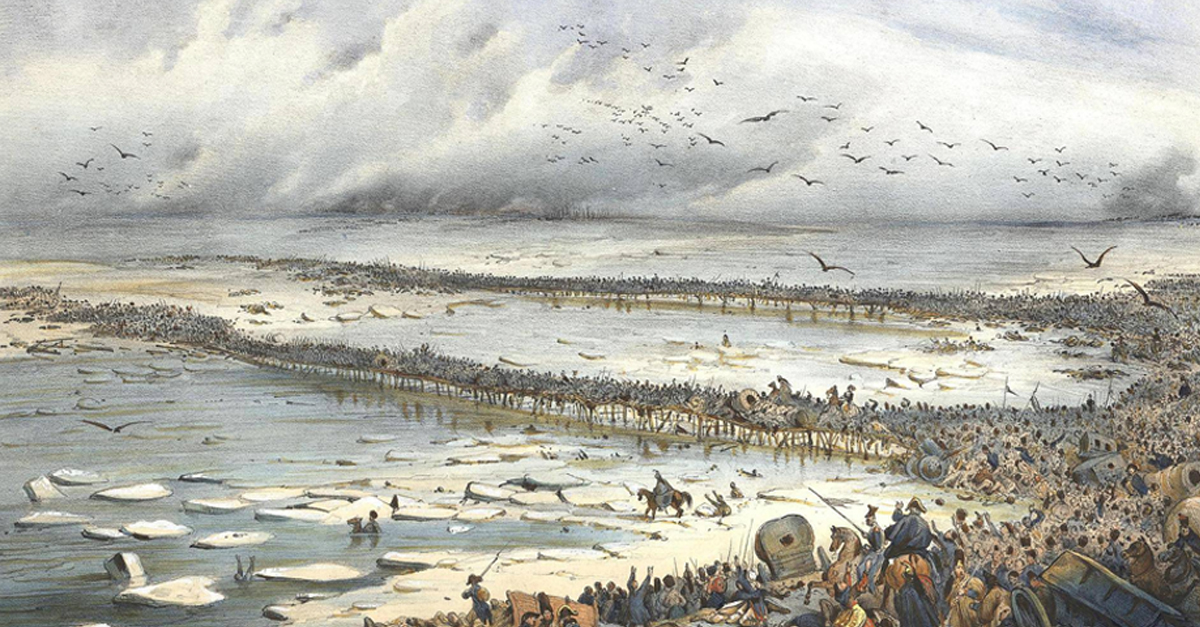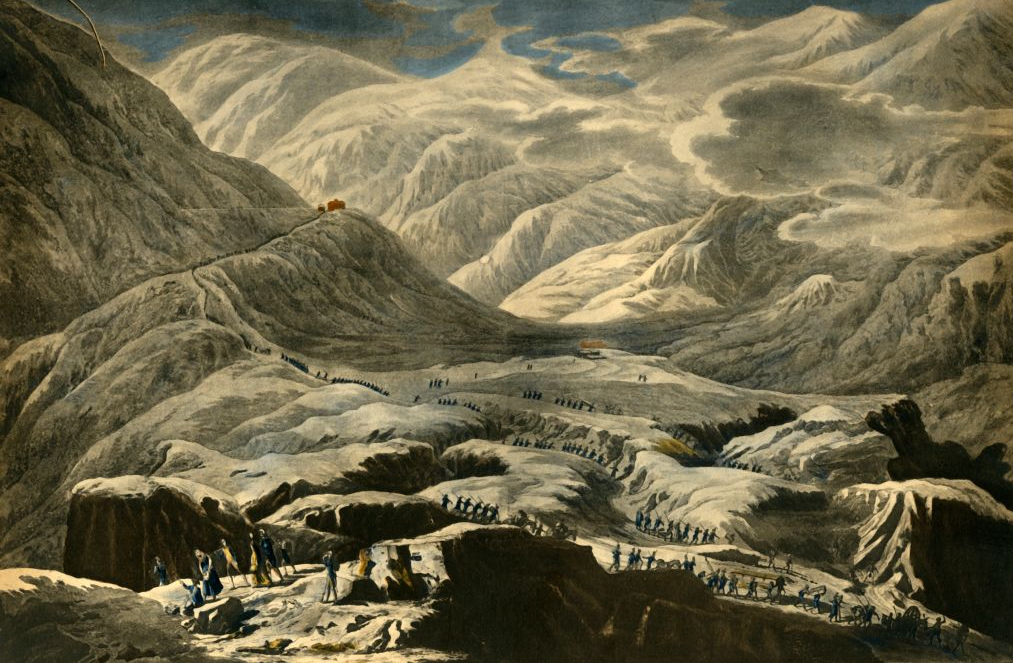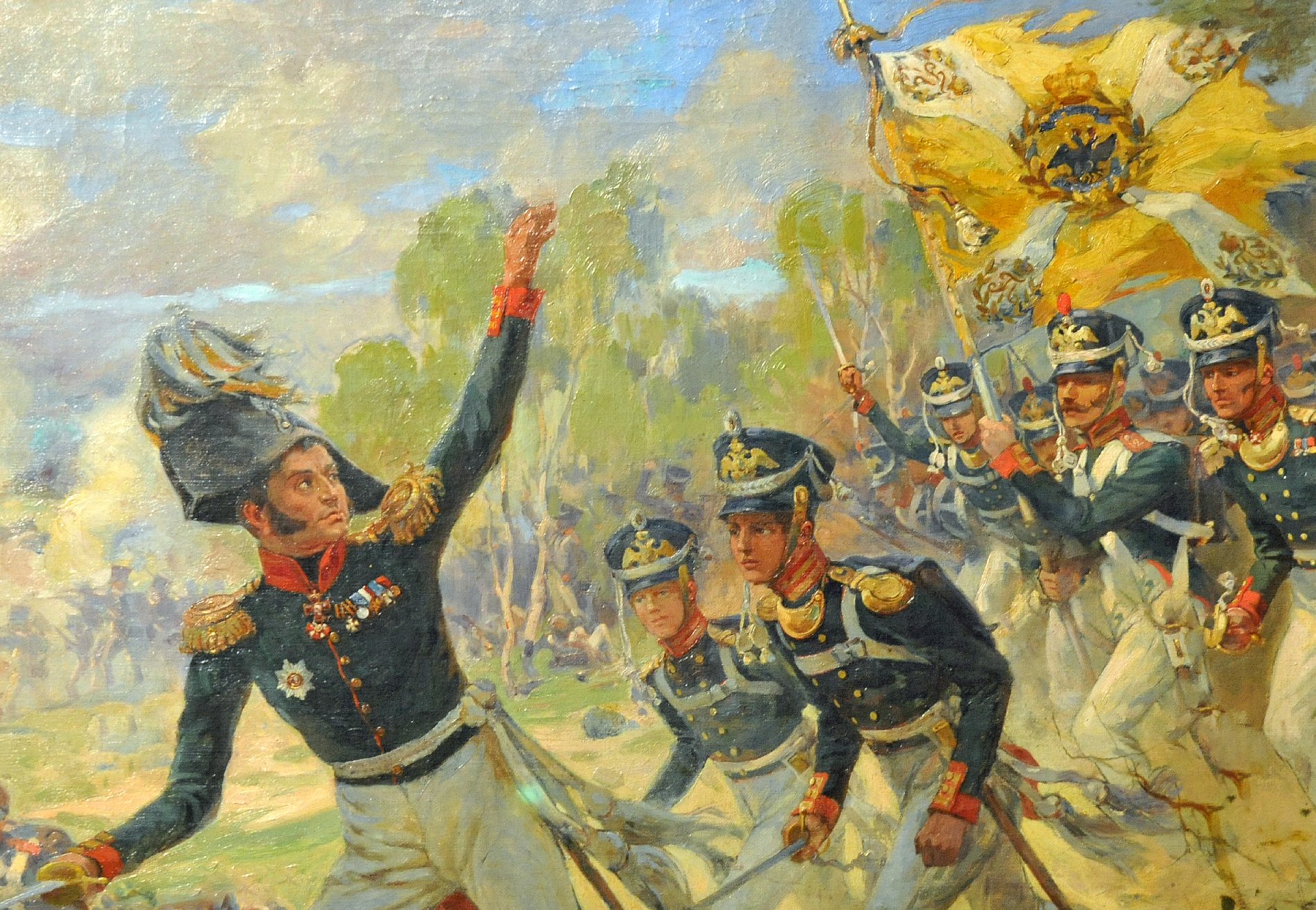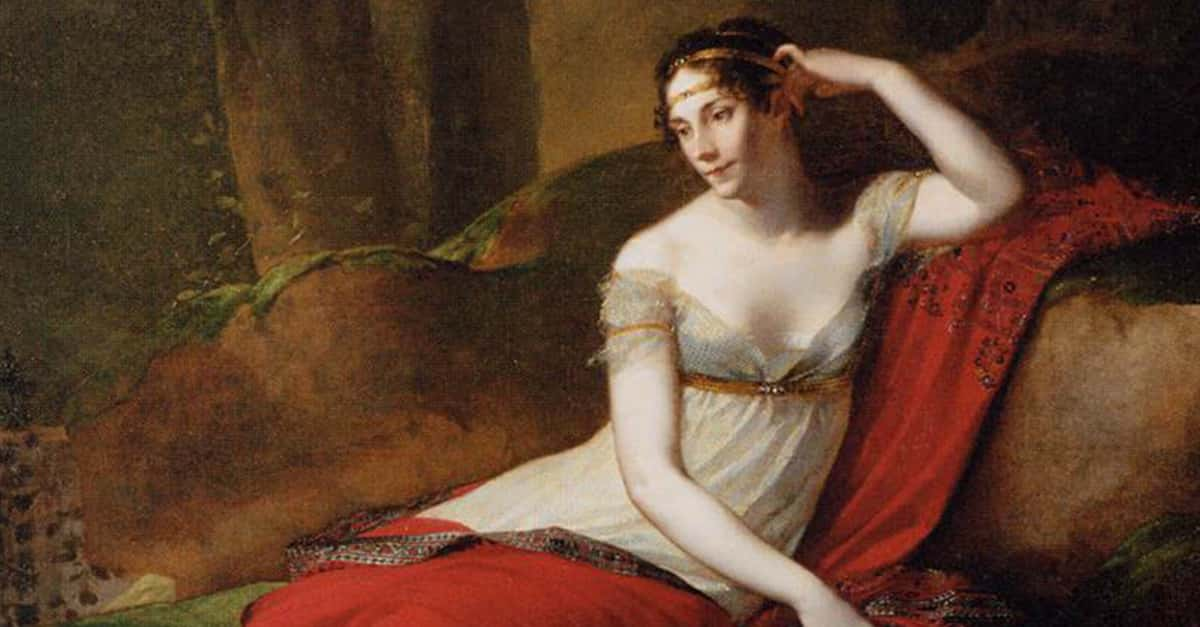All Of Napoleon’s Worst Fears Came True
Napoleon’s 1812 invasion of Russia was a disastrous saga of brutal battles, blistering heat, and bitter cold that ultimately shattered his empire. From reports of cannibalism to walls built out of corpses, this was Napoleon’s nightmare.
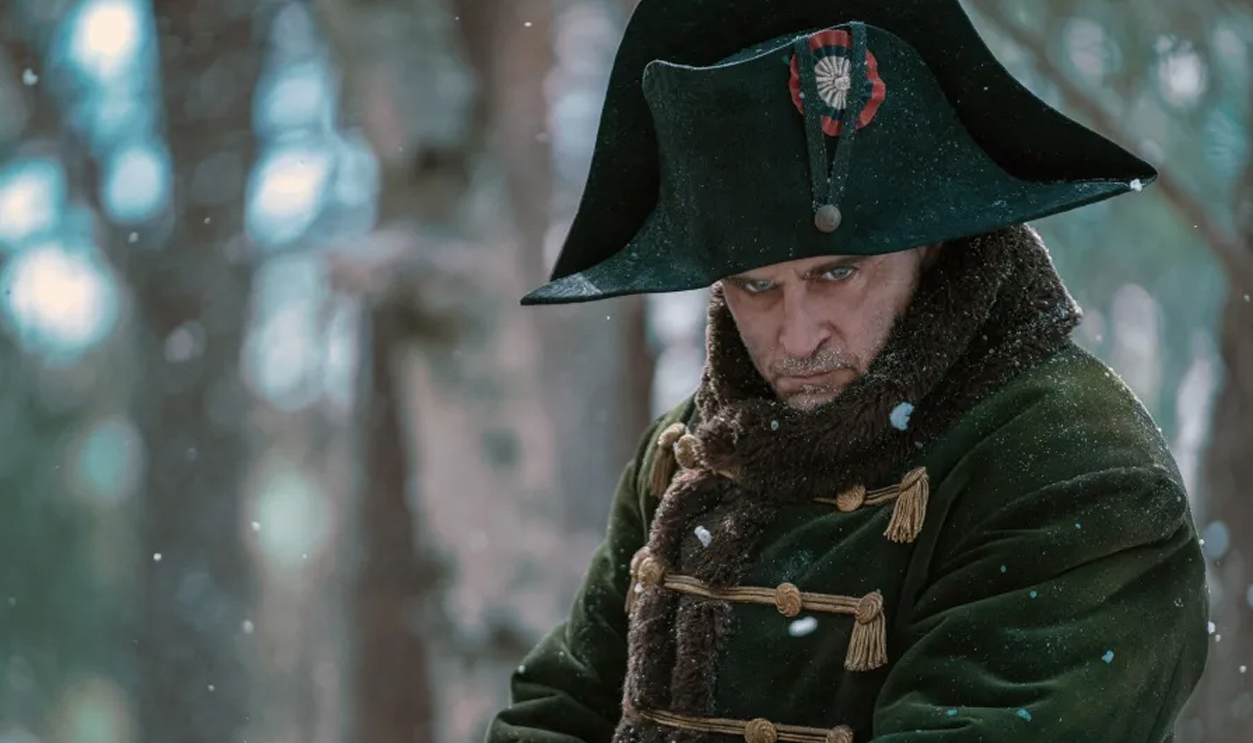
1. It Started With A Revolution
Following the French Revolution, Napoleon Bonaparte rose to power as France’s first emperor. Just a decade later, his unmatched martial genius and gutsy battlefield gambles made him the most powerful ruler in all of Europe. But it was getting lonely at the top.
 Jacques-Louis David, Wikimedia Commons
Jacques-Louis David, Wikimedia Commons
2. Napoleon’s Empire Kept Growing
Napoleon’s victories against the First, Second, and Third Coalitions led to the fall of the millennia-old Holy Roman Empire. Later conflicts saw Napoleon expanding his empire…right up to the borders of his frenemy, Tsar Alexander I of Russia.
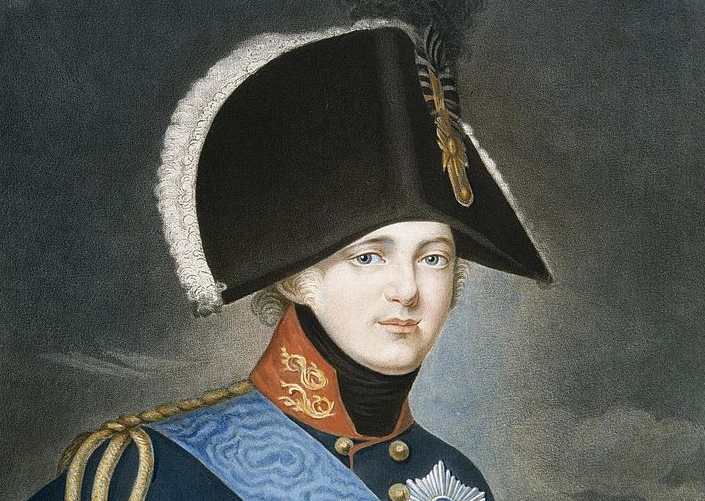 Кюгельген (Кюгельхен), Герард фон, Wikimedia Commons
Кюгельген (Кюгельхен), Герард фон, Wikimedia Commons
3. France And Russia Started Out As Friends
In 1807, to prevent conflict from breaking out, Napoleon and Alexander I signed the Treaty of Tilsit. The treaty marked the start of a fragile Franco-Russian alliance, and a tenuous bromance between the two rulers. But the deal turned out to be a little too one-sided for Alexander’s liking.
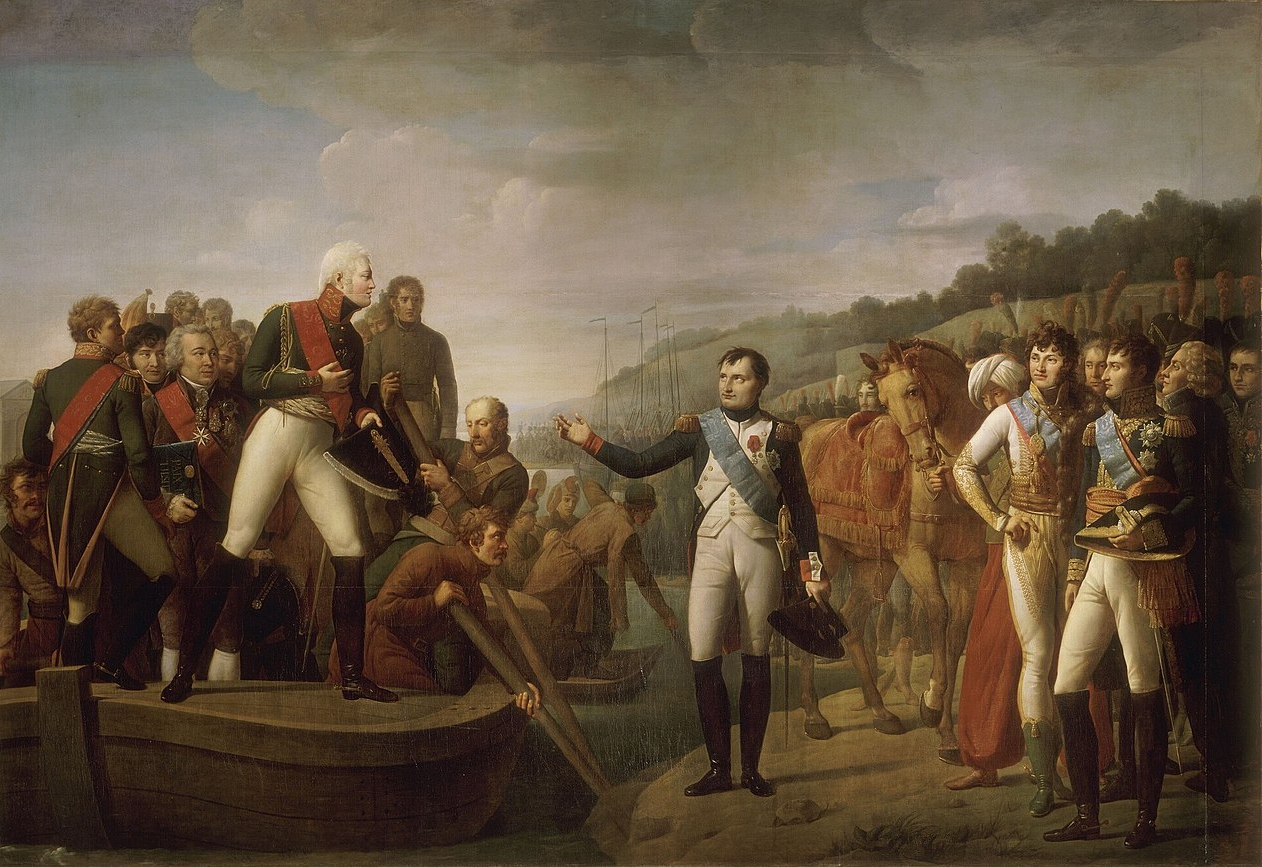 Gioacchino Giuseppe Serangeli, Wikimedia Commons
Gioacchino Giuseppe Serangeli, Wikimedia Commons

History's most fascinating stories and darkest secrets, delivered to your inbox daily.
4. Russia Backed Out Of The Treaty First
Part of the Treaty of Tilsit was the Continental System; a blockade that Napoleon had designed specifically to cripple his archenemy, Britain. But, by 1810, the blockade had backfired, and who paid the price? Alexander and Russia.
The Russian economy crumbled from the effects of the standoff. Finally, Alexander had enough, and he broke the treaty after three years. Napoleon’s response was anything but friendly.
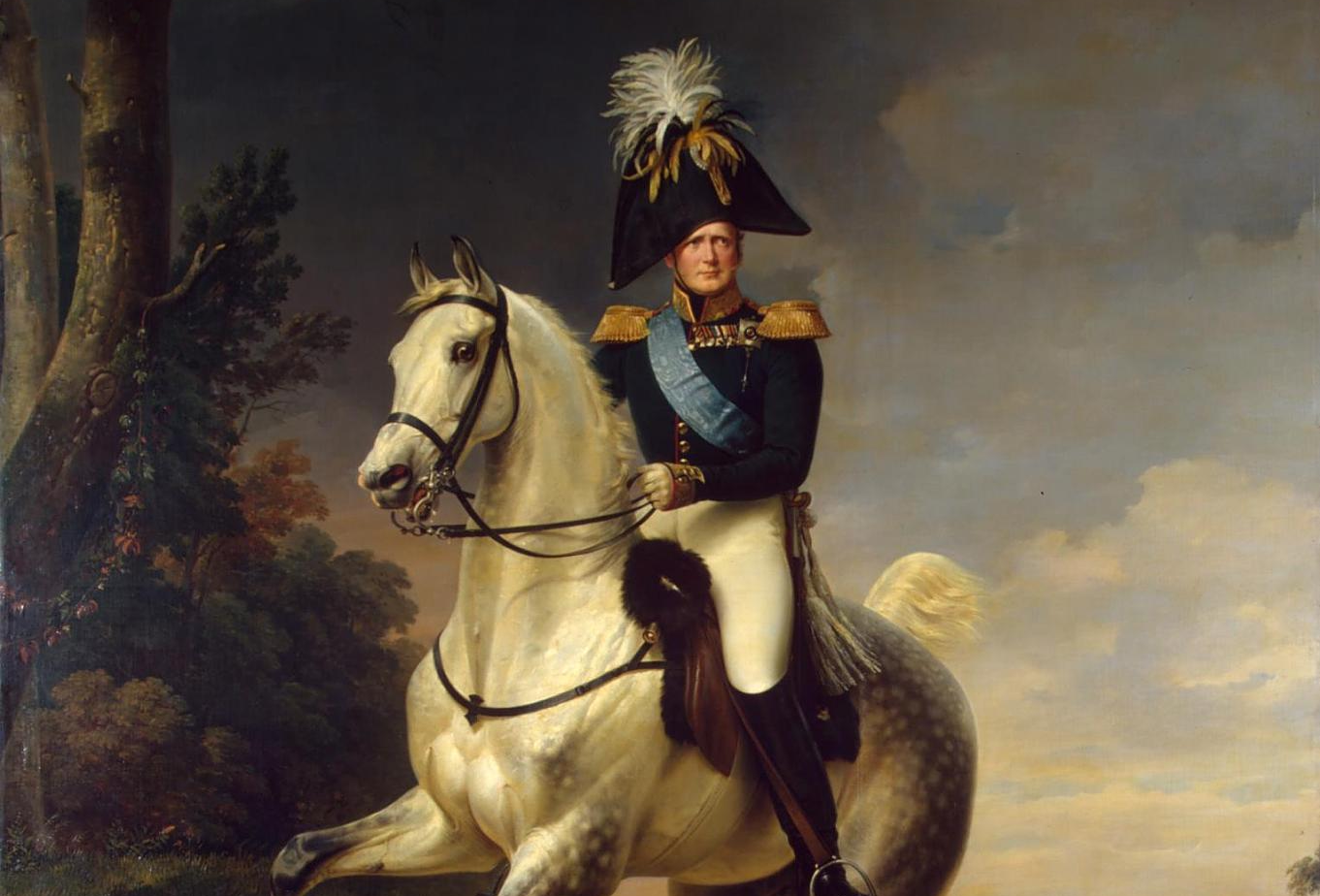 Franz Krüger, Wikimedia Commons
Franz Krüger, Wikimedia Commons
5. Tsar Alexander Kept A Wary Eye On His “Ally”
After defeating the Fifth Coalition, Napoleon annexed Western Galicia from Austria, bringing France’s imperial borders one step closer to Russia. From Tsar Alexander’s perspective, Napoleon’s increasingly ambitious territorial aspirations began to look particularly threatening.
And Napoleon’s next move was downright provocative.
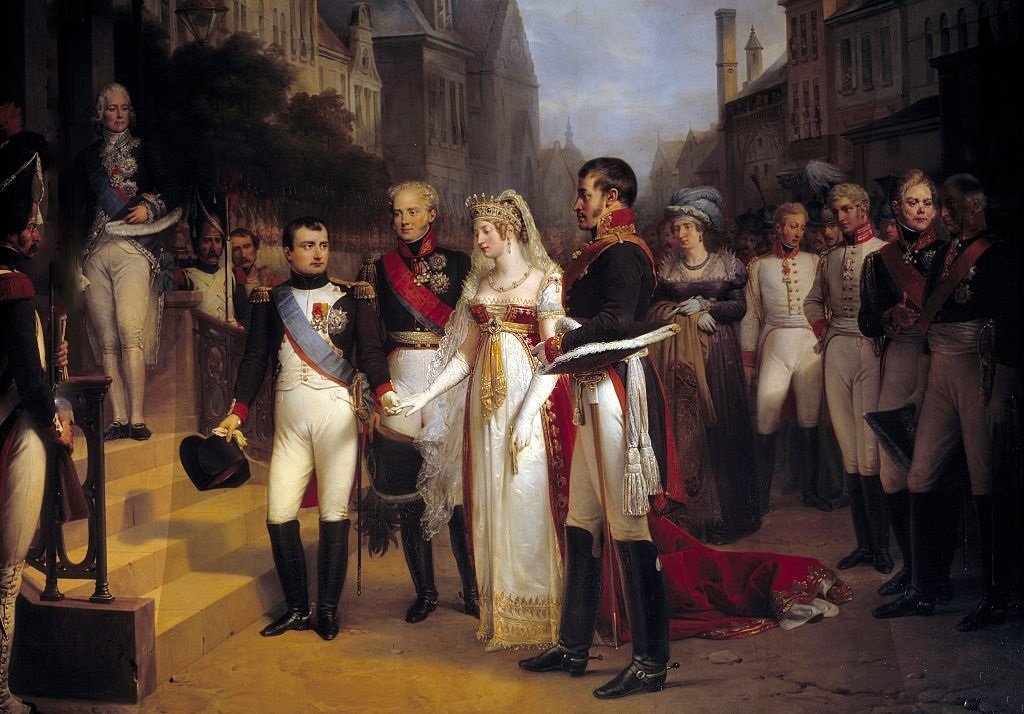 Nicolas Gosse, Wikimedia Commons
Nicolas Gosse, Wikimedia Commons
6. Napoleon Hoped For An Imperial Marriage
Napoleon attempted to repair his ties with Russia by proposing marriage to the Tsar’s sister, Anna Pavlovna. But, when the Russians delayed responding, Napoleon made a shocking power play. The French emperor immediately pivoted, marrying Marie Louise of Austria instead, deepening the Franco-Austrian alliance—and raising the ire of the Russian court.
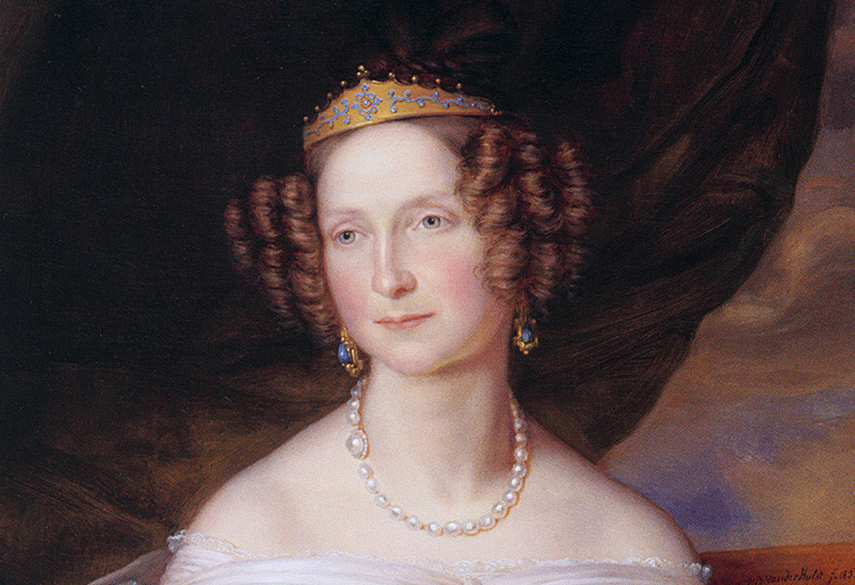 Jan Baptist van der Hulst, Wikimedia Commons
Jan Baptist van der Hulst, Wikimedia Commons
7. Napoleon Plotted Against The Russians In Secret
By early 1811, it became apparent to Napoleon that the Russians were not going to rejoin the Continental System and help him in blockading Britain. So, he began preparing for the inevitable. Napoleon gave orders to move officers into strategic Baltic ports like Stettin and Danzig, hoping that he could scare the Russians into compliance.
But he had other problems.
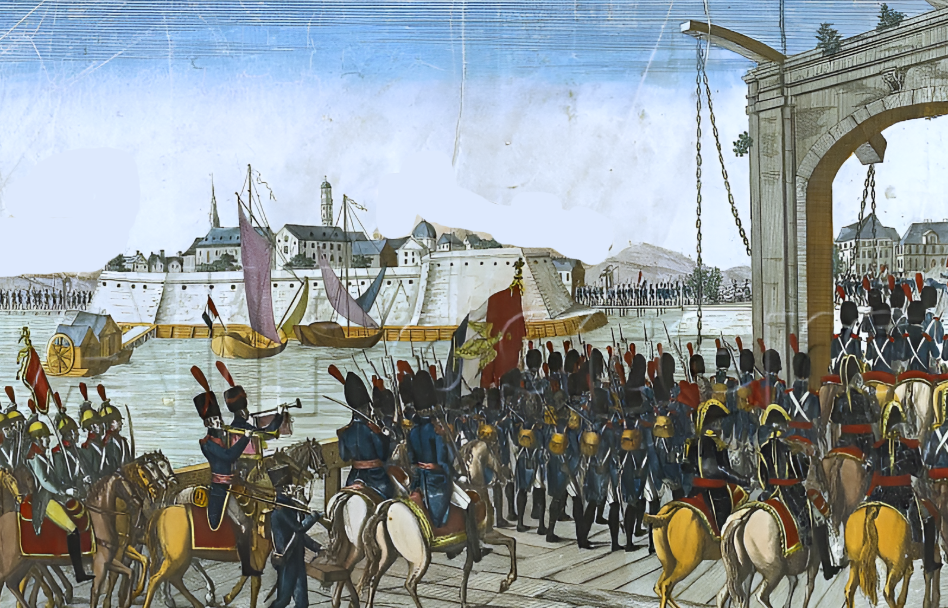 Anonymous plate, Wikimedia Commons
Anonymous plate, Wikimedia Commons
8. Napoleon’s Health Began To Deteriorate
Even as he began planning his invasion of Russia, Napoleon faced personal struggles. The details are scarce, but around this time, Napoleon began experiencing numerous health problems and gained a significant amount of weight.
Then, at the worst possible time, his old friend turned on him.
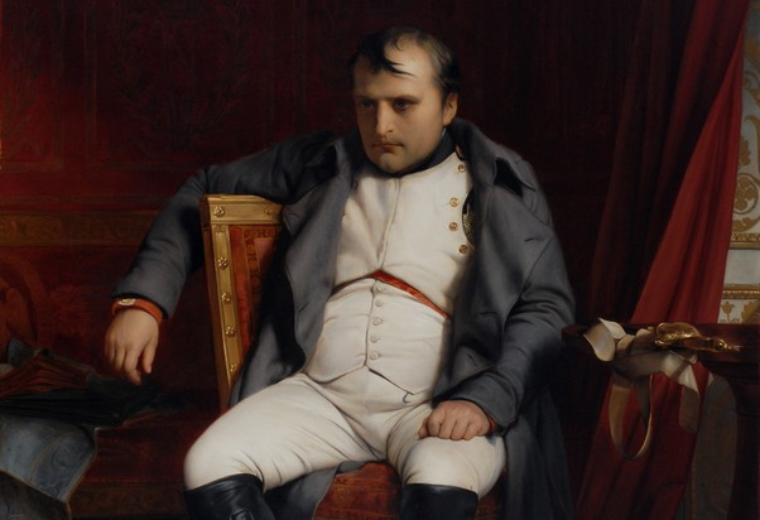 Paul Delaroche, Wikimedia Commons
Paul Delaroche, Wikimedia Commons
9. Russia Made An Offer France Had To Refuse
Tsar Alexander I watched on in horror and disbelief as Napoleon’s fearsome forces—the best in the world—gathered along his border. By April 1812, the Tsar simply couldn’t tolerate his “ally’s” provocation any longer. He demanded that Napoleon withdraw his forces from the Grand Duchy of Warsaw, or face the consequences.
Not surprisingly, Napoleon chose to face the consequences.
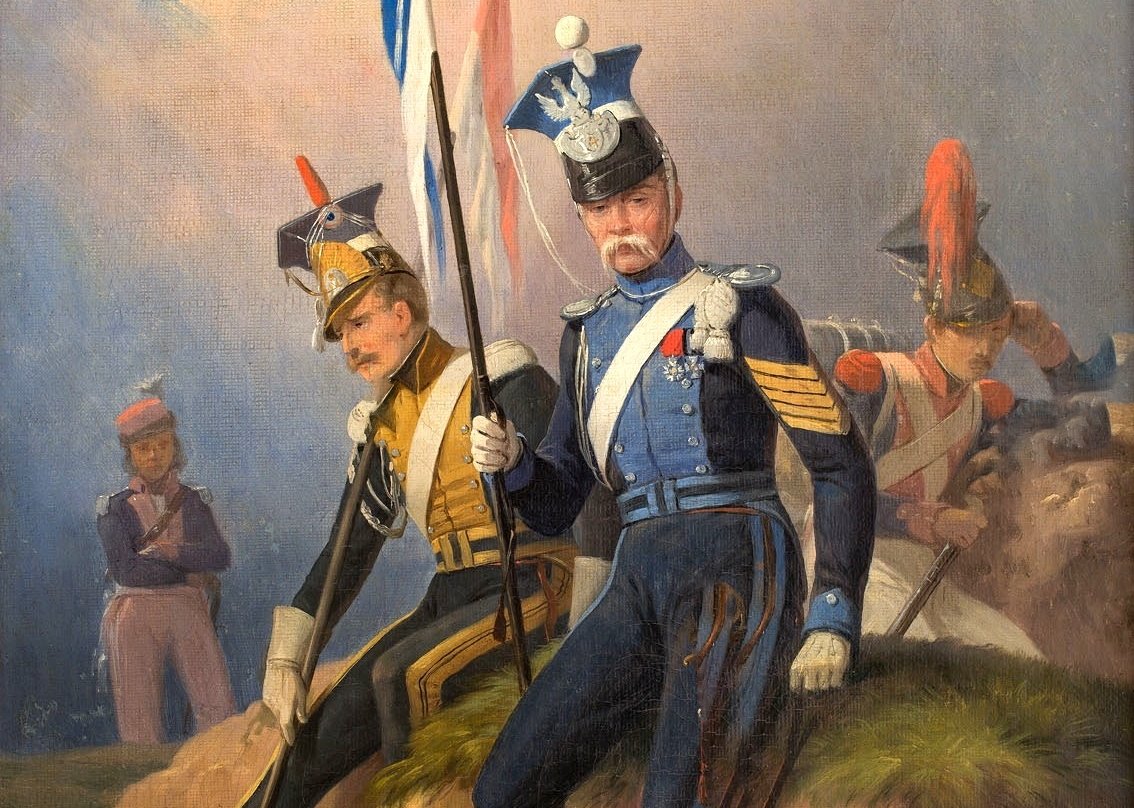 January Suchodolski, Wikimedia Commons
January Suchodolski, Wikimedia Commons

History's most fascinating stories and darkest secrets, delivered to your inbox daily.
10. The Battle Began
In response to Tsar Alexander I’s ultimatum, Napoleon made a fiery proclamation: “[Russia] now breaks her vows,” Napoleon stated, “and refuses to give any explanation of her strange conduct…Russia is hurried away by a fatality: her destinies will be fulfilled…Let us then march forward; let us cross the Neman and carry the [fight] into her country”.
It would be the most epic fight of his life.
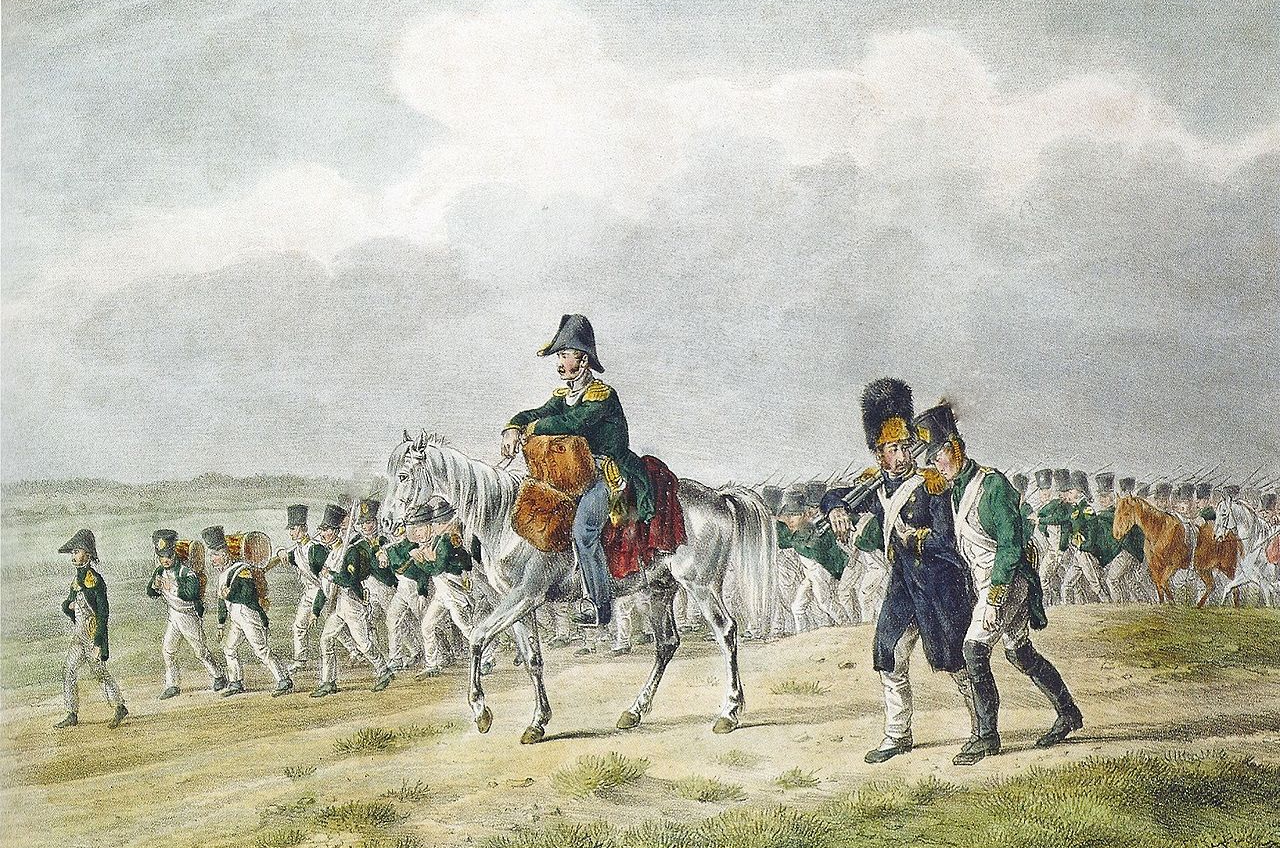 Albrecht Adam, Wikimedia Commons
Albrecht Adam, Wikimedia Commons
11. Napoleon Prepared For The Worst
Contrary to popular belief, Napoleon didn’t blunder into Russia unprepared. He anticipated the immense challenges—from the unforgiving Russian climate to the scarcity of supplies—and meticulously planned for them. But, the one thing he was not counting on, was the Russian resolve.
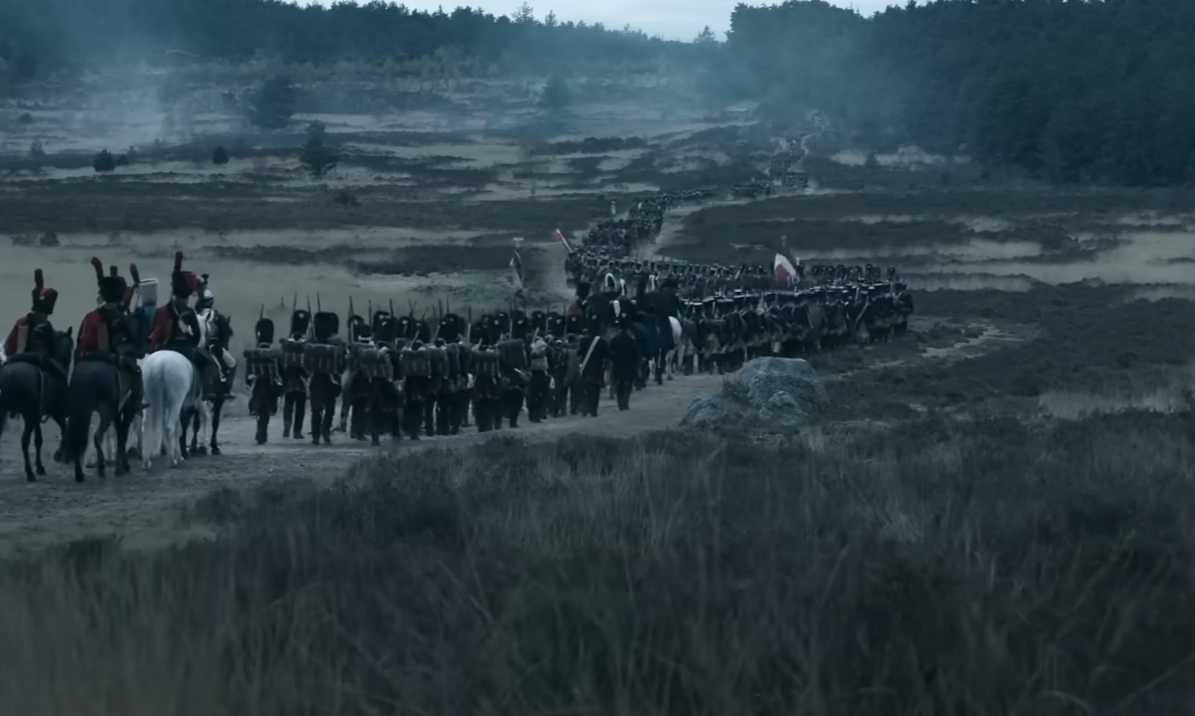 Scott Free Productions, Napoleon (2023)
Scott Free Productions, Napoleon (2023)
12. Napoleon Learned From History—But Not Enough
Prior to launching his own invasion, Napoleon studied previous campaigns into Russia, including Charles XII of Sweden’s doomed attempt. Reflecting on his own Polish campaign in 1807, Napoleon concluded, “We can hope for nothing in that countryside.” He knew a massive logistical effort would be required to successfully invade Russia.
Napoleon was determined not to repeat history’s mistakes—but fate had other plans.
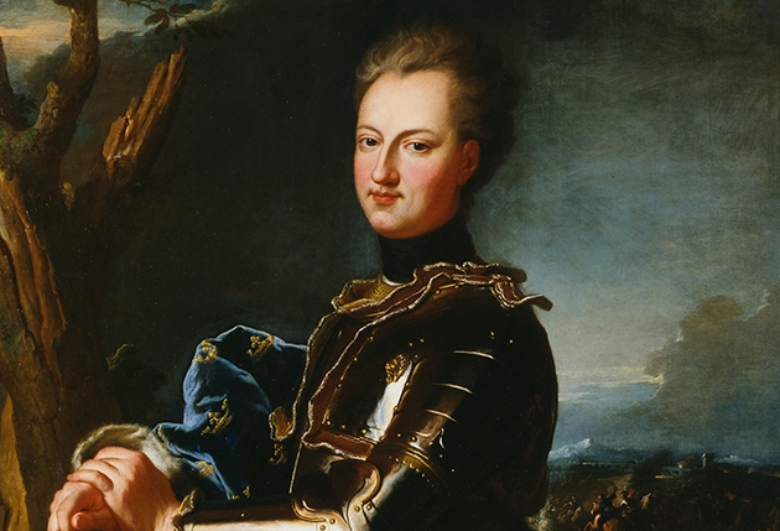 Workshop of Hyacinthe Rigaud, Wikimedia Commons
Workshop of Hyacinthe Rigaud, Wikimedia Commons
13. France Assembled The Largest Army In Europe
For the sole purpose of forcing Tsar Alexander I into subjugation, Napoleon assembled the greatest army Europe had ever seen: the indomitable Grande Armée. He amassed somewhere between 450,000 and 650,000 soldiers. Comparatively, the Russians had a paltry 200,000.
The overwhelming force showcased Napoleon’s confidence and martial genius—or his hubris.
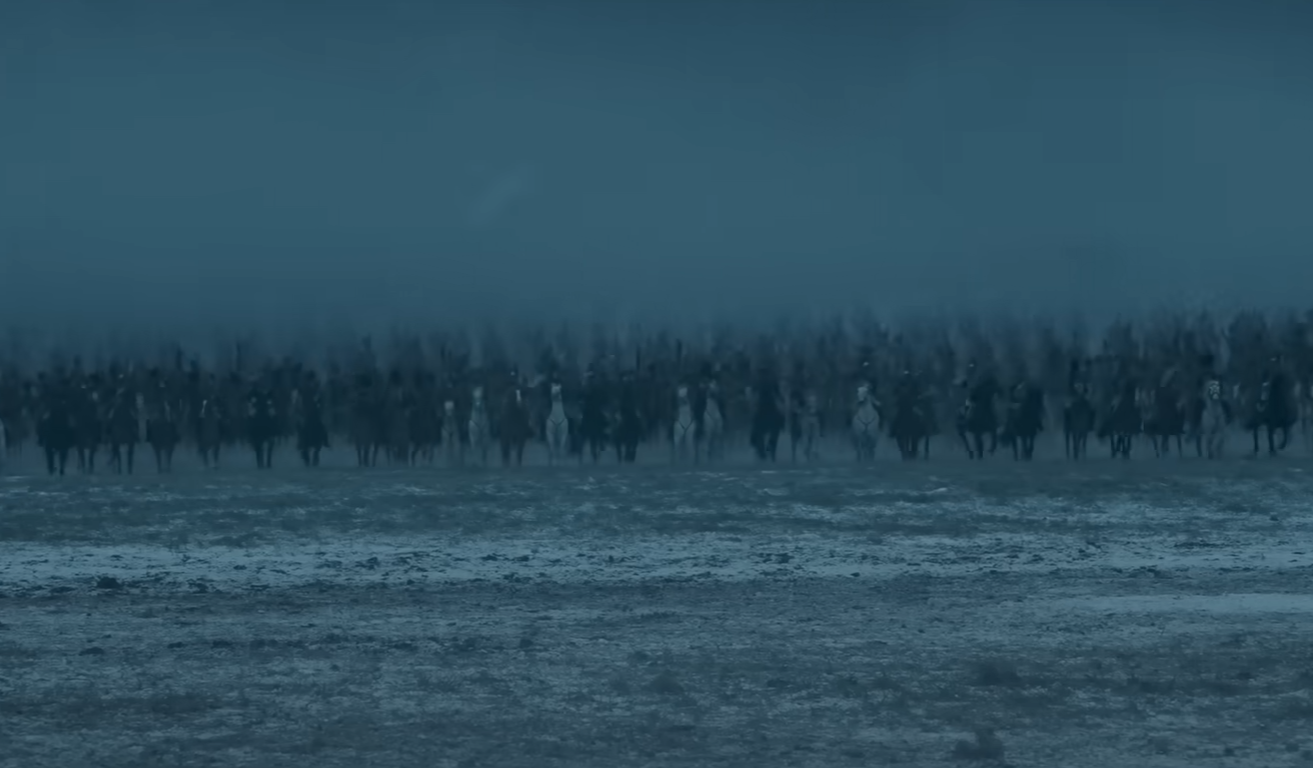 Scott Free Productions, Napoleon (2023)
Scott Free Productions, Napoleon (2023)
14. It Was A Logistical Mega Project
Napoleon wasn’t just a master tactician on the battlefield; he was also a logistics genius. To sustain his colossal force, he organized 20 train battalions equipped with nearly 8,000 vehicles, providing a 40-day supply to the frontlines. Compared to all other previous campaigns, this effort was nothing short of monumental.
In fact, it required setting up entire cities.
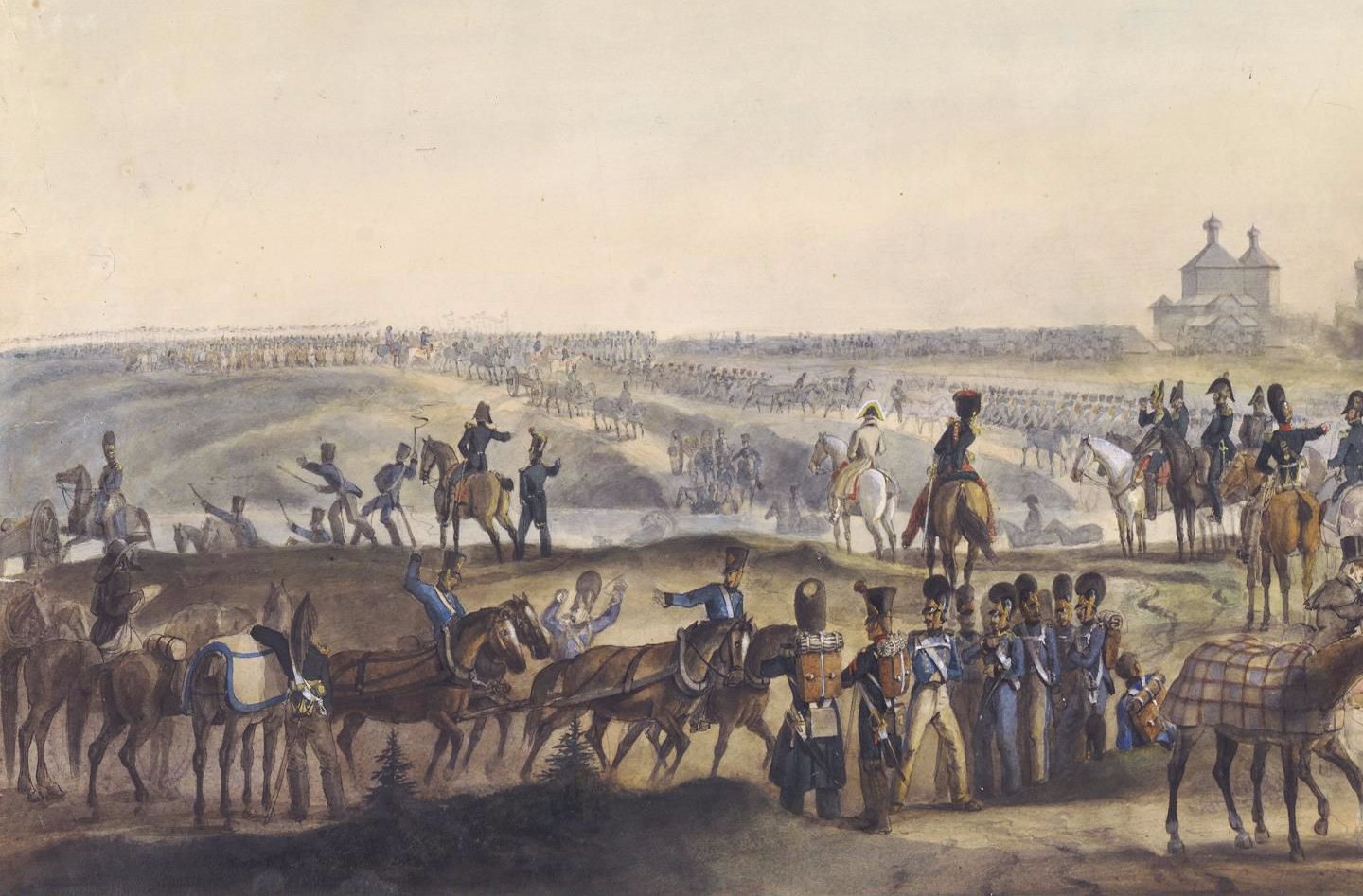 Christian Wilhelm von Faber du Faur, Wikimedia Commons
Christian Wilhelm von Faber du Faur, Wikimedia Commons
15. Napoleon Created A Breadbasket For His Empire
Napoleon knew that his forces couldn’t rely on the Russian landscape to provide food for the Grand Armée as it marched. So, instead, he developed depots in Breslau, Plock, and Wyszogród to churn out flour, while another city produced 60,000 biscuits…daily.
But the Grand Armée couldn’t survive on biscuits alone—and Napoleon wanted to make sure they wouldn’t have to.
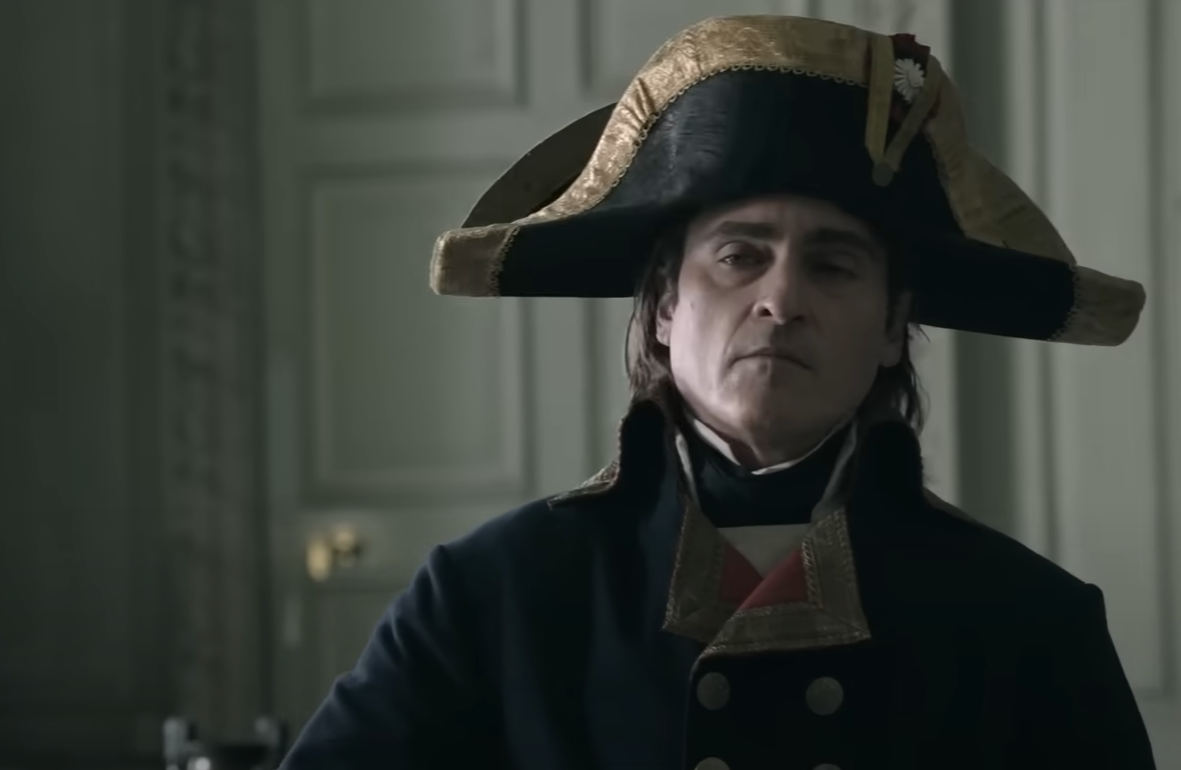 Scott Free Productions, Napoleon (2023)
Scott Free Productions, Napoleon (2023)

History's most fascinating stories and darkest secrets, delivered to your inbox daily.
16. France Mobilized A Stampede Of Cattle
To round out his officers’ diets, Napoleon amassed a veritable stampede of livestock. Following closely on the heels of the Grand Armée was a staggering 50,000 heads of cattle, supplying dairy and meat to the mobile force. In total, the army’s train battalions hauled over 8,000 tons of supplies in heavy and light wagons into Russian territory.
It was a continental affair. But would it be enough?
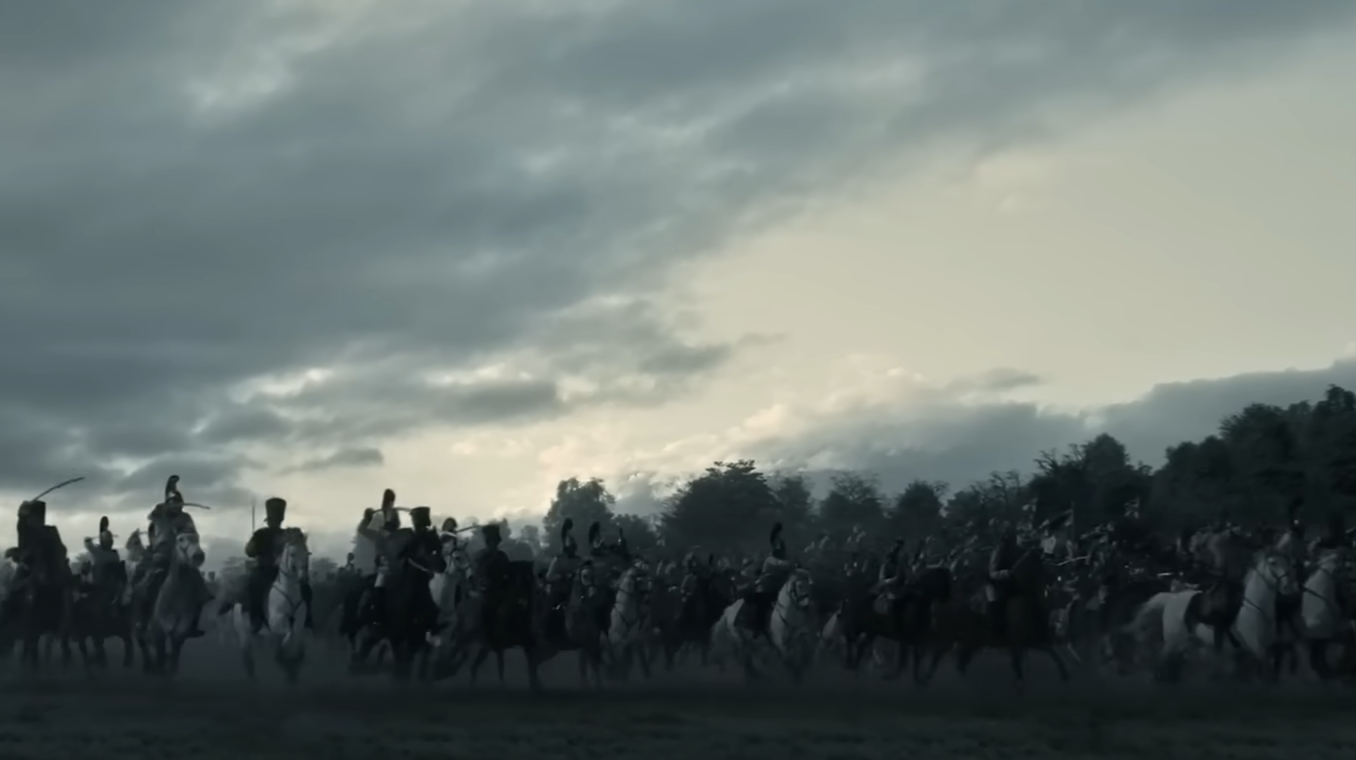 Scott Free Productions, Napoleon (2023)
Scott Free Productions, Napoleon (2023)
17. Napoleon Brought All Of Europe To Bear On Russia
Napoleon’s Grand Armée was a true representation of the French Empire that he had created. And it must have seemed to the Russians like the entire continent of Europe was descending on them. The Grand Armée included Frenchmen, Poles, Lithuanians, Germans, Italians, Spaniards, and more.
But it wasn’t exactly one big happy Napoleonic family.
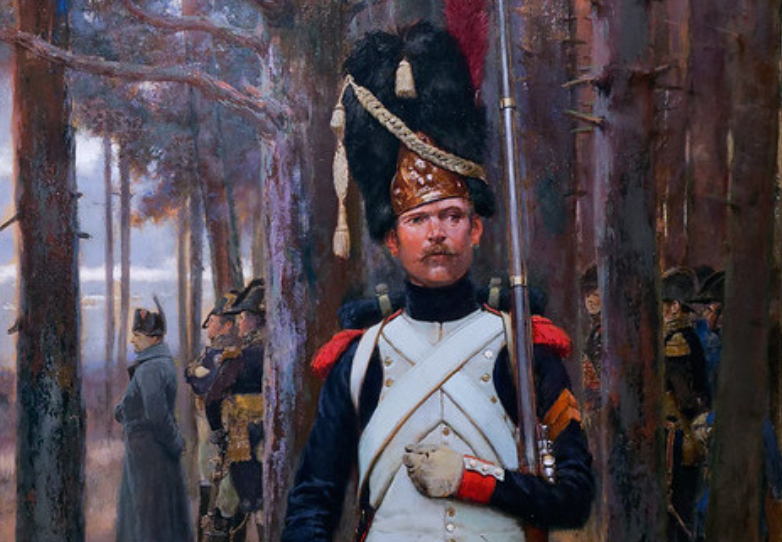 Édouard Detaille, Wikimedia Commons
Édouard Detaille, Wikimedia Commons
18. Most Of The Grand Armée Just Wanted To Go Home
While French and Polish officers marched with fervor for Napoleon, officers from other regions of the empire were a lot less enthusiastic. Hailing from nations subjugated by Napoleon, many fought out of fear or obligation rather than loyalty.
It was a shaky foundation for such an ambitious campaign—a foundation that would soon start cracking right before Napoleon’s eyes.
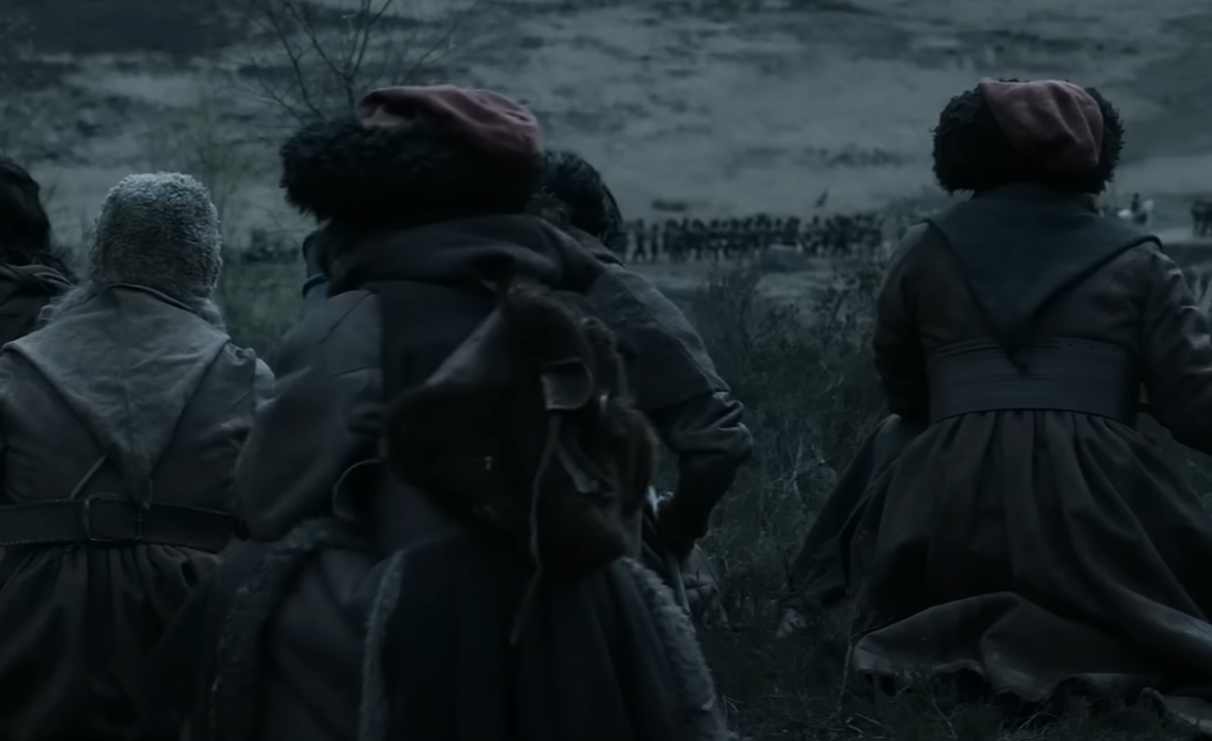 Scott Free Productions, Napoleon (2023)
Scott Free Productions, Napoleon (2023)
19. The Russians Fired Three Shots—Then Ran Away
When the Grande Armée entered Russian territory, they expected fierce resistance from the defenders. However, they practically received a red carpet welcome. A few Cossacks fired just three shots at the invading force before vanishing into the distance. For Napoleon, the crossing was easy—too easy, some might say.
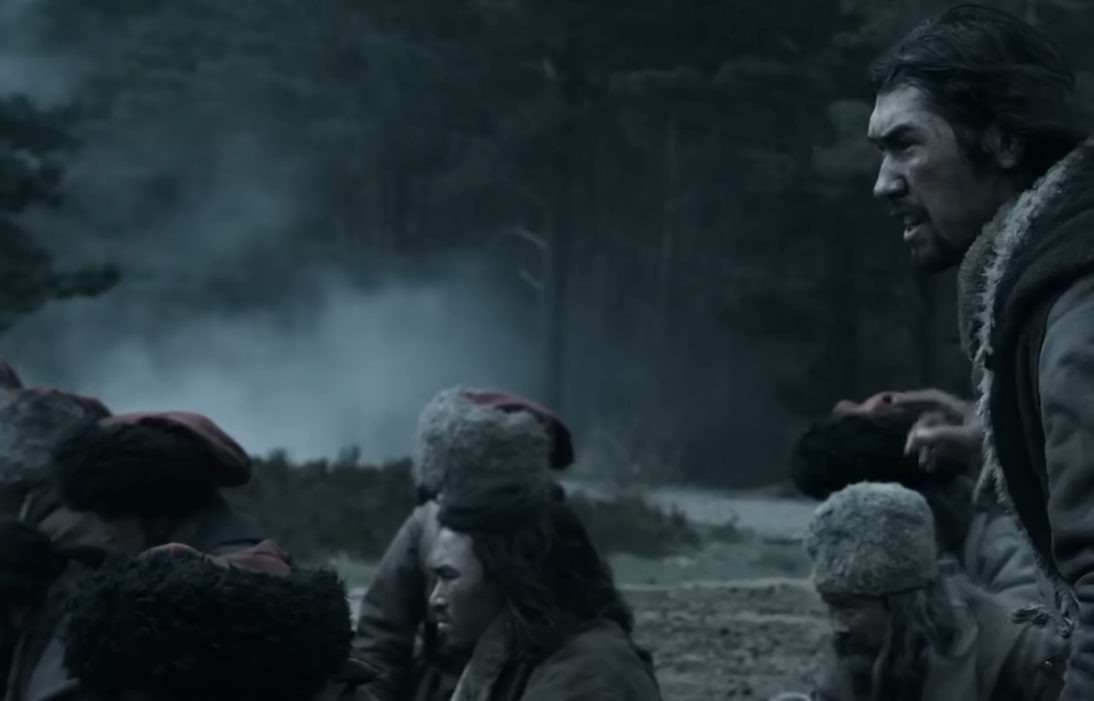 Scott Free Productions, Napoleon (2023)
Scott Free Productions, Napoleon (2023)
20. Napoleon Received A Bad Omen
As Napoleon watched his forces pour across the Niemen River, he received more resistance from Russia’s wildlife than he did from the Russian forces. A startled rabbit spooked his horse, throwing the French emperor to the ground. Though he walked away from the embarrassing encounter with only a bruised hip, whispers of bad omens spread like wildfire through the ranks.
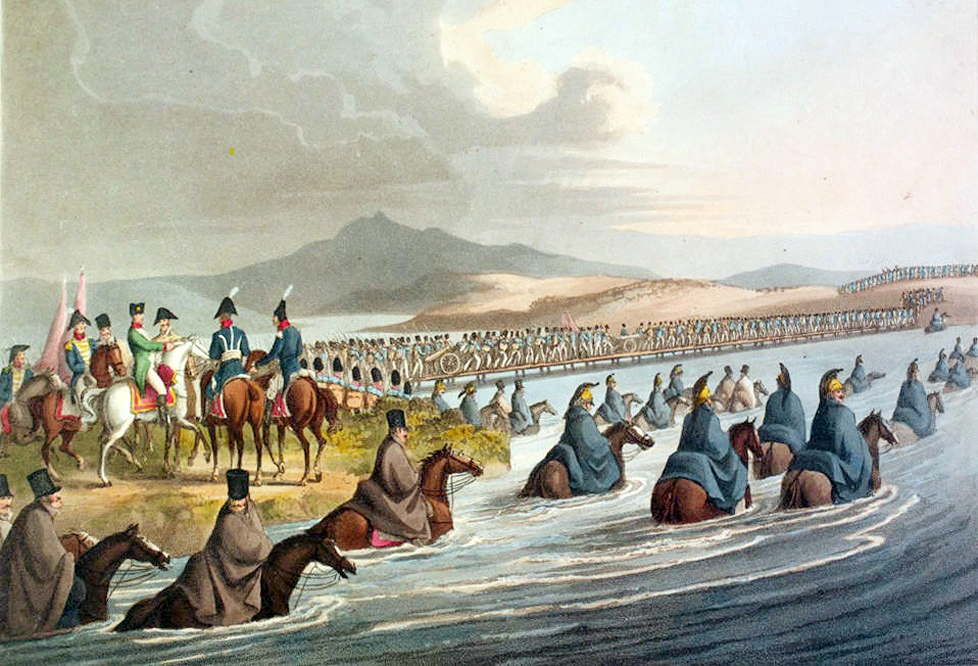 CLARK, John Heaveside, dit Waterloo Clark DUBOURG, M., Wikimedia Commons
CLARK, John Heaveside, dit Waterloo Clark DUBOURG, M., Wikimedia Commons
21. The French Were Moving Too Slowly
Despite initial success, the Grand Armée’s march into Lithuania quickly exposed the flaws in Napoleon’s meticulous plans. The Grand Armée and their 1,100 cannons struggled along dirt paths winding through birch forests and marshes. Meanwhile, Russian forces, equipped with over 900 cannons, waited to exploit the invaders’ slow progress.
It was apparent early on; Russia herself would swallow the Grand Armée whole and grind her to dust and bones.
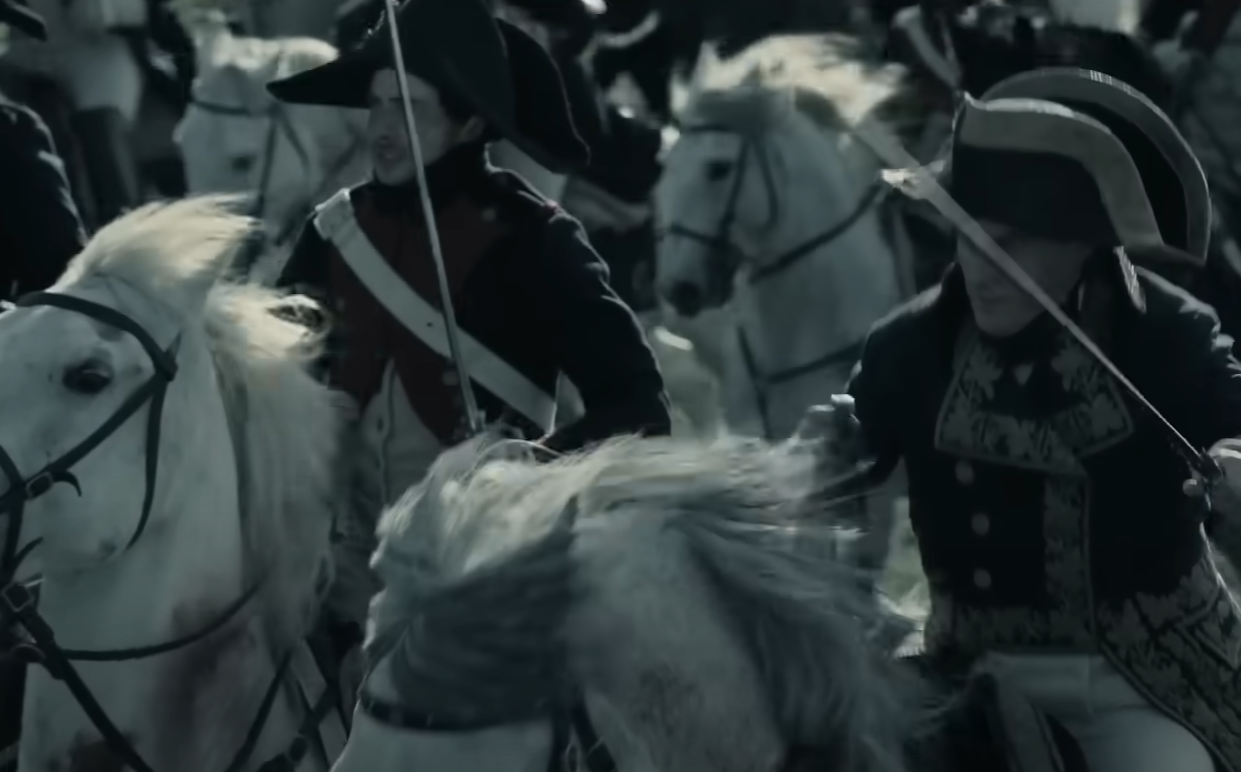 Scott Free Productions, Napoleon (2023)
Scott Free Productions, Napoleon (2023)

History's most fascinating stories and darkest secrets, delivered to your inbox daily.
22. France’s Supplies Couldn’t Keep Up
From the start of the invasion, the supply lines were a disaster. Forced marches pushed Napoleon’s corps ahead at breakneck speed, while the supply convoys, slowed by the poor roads, started falling further and further behind. Those at the back suffered the worst, enduring hunger, thirst, and exhaustion before even a single battle had taken place.
It was a new challenge for Napoleon, the greatest tactician the world had yet seen. What could he come up with?
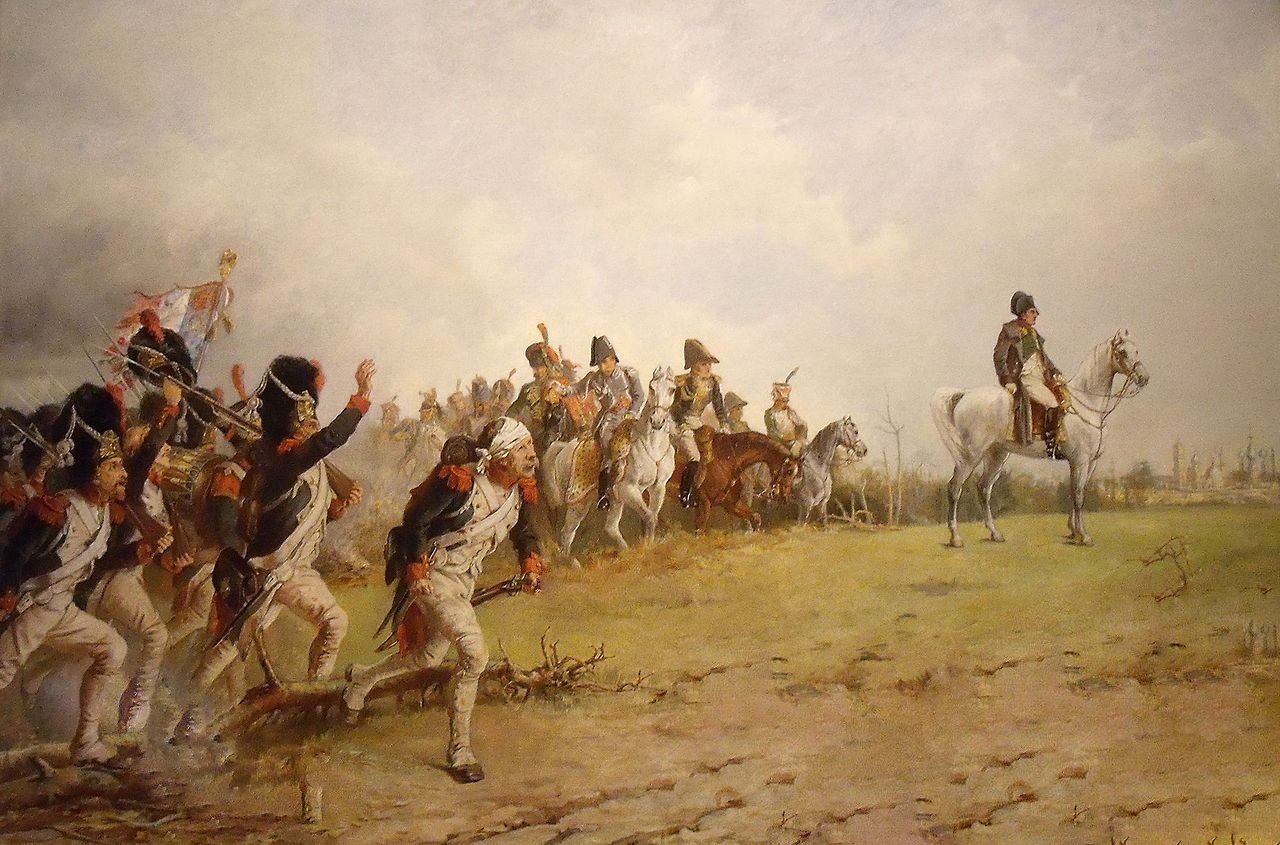 Montreal Museum of Fine Arts, CC0, Wikimedia Commons
Montreal Museum of Fine Arts, CC0, Wikimedia Commons
23. The Grand Armée Lived Off the Land—Or Tried To
In the prior decade, Napoleon’s strategy of foraging had worked brilliantly in Central Europe, where dense populations and rich farmland provided ample resources. But in Russia’s sparsely populated wilderness, this tactic unraveled. The vast distances and primitive roads left the army scrounging in vain for sustenance.
They turned to desperate measures early on.
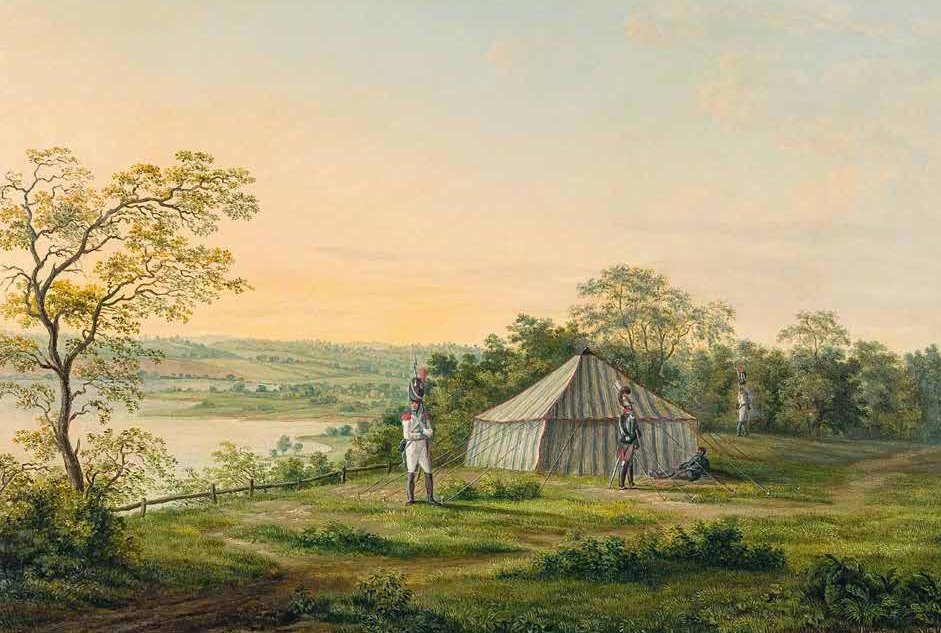 Albrecht Adam, Wikimedia Commons
Albrecht Adam, Wikimedia Commons
24. Napoleon’s Army Pillaged And Pilfered From Everyone
One French colonel captured the chaos of Napoleon’s logistical nightmare, observing, "The Army must live by the sword". Even in supposed allied territory, the Grande Armée resorted to pillaging the local population "atrociously," treating Prussian soil as though it were enemy ground.
But even with their atrocities, it wasn't enough to supply massive invading force.
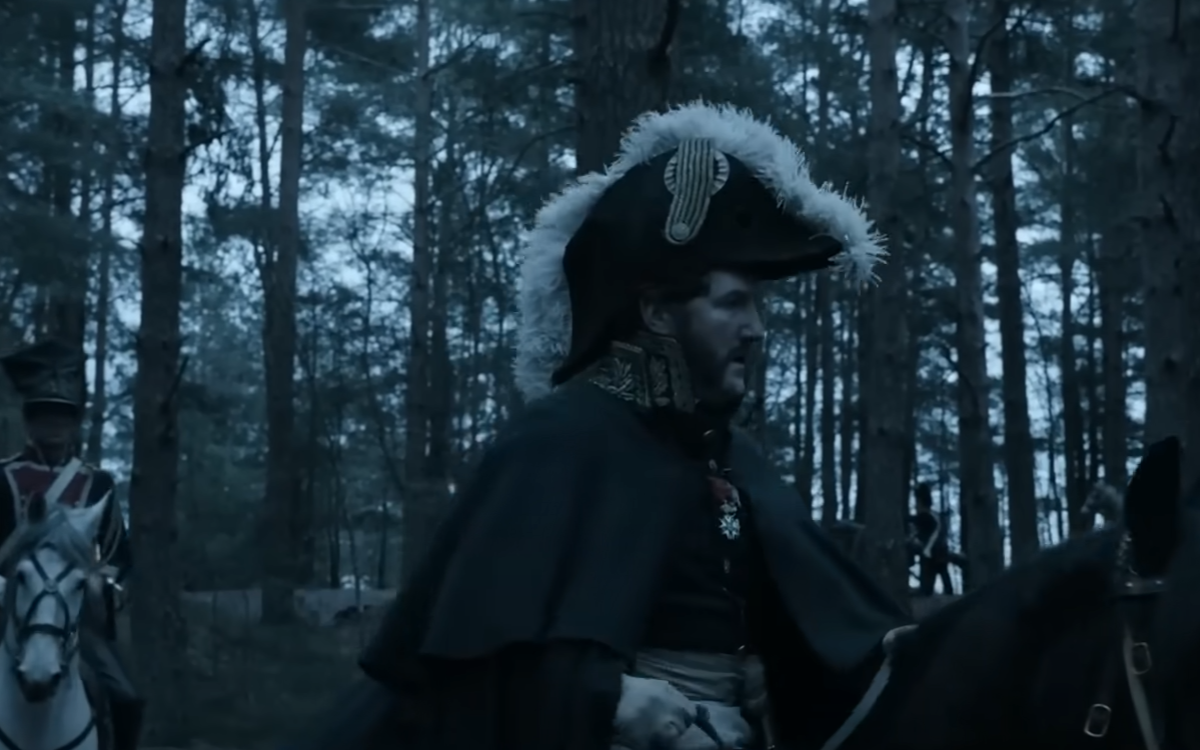 Scott Free Productions, Napoleon (2023)
Scott Free Productions, Napoleon (2023)
25. The French Behind A Trail Of Horses
By the time Napoleon reached Vilna, Lithuania on June 28, the Grande Armée was already in shambles. They had left the corpses of over 5,000 horses behind them. Vital to pulling supplies, their loss crippled the army’s mobility. Forced to abandon upwards of 600 wagons carrying vital armaments, the army’s strength was already bleeding out.
And this was just the beginning.
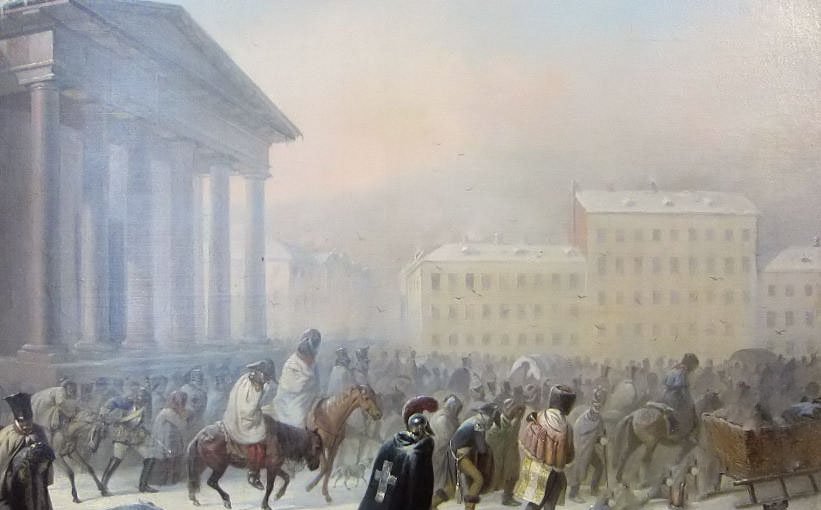 Vasily Timm, Wikimedia Commons
Vasily Timm, Wikimedia Commons
26. Napoleon Waited For Peace
Napoleon believed Alexander I would sue for peace after Vilna fell. Instead, the Tsar dug in his heels, and retreated further into Russian territory. It was the first of many bitter disappointments for the French emperor as the Russian campaign turned into a slow, grueling nightmare.
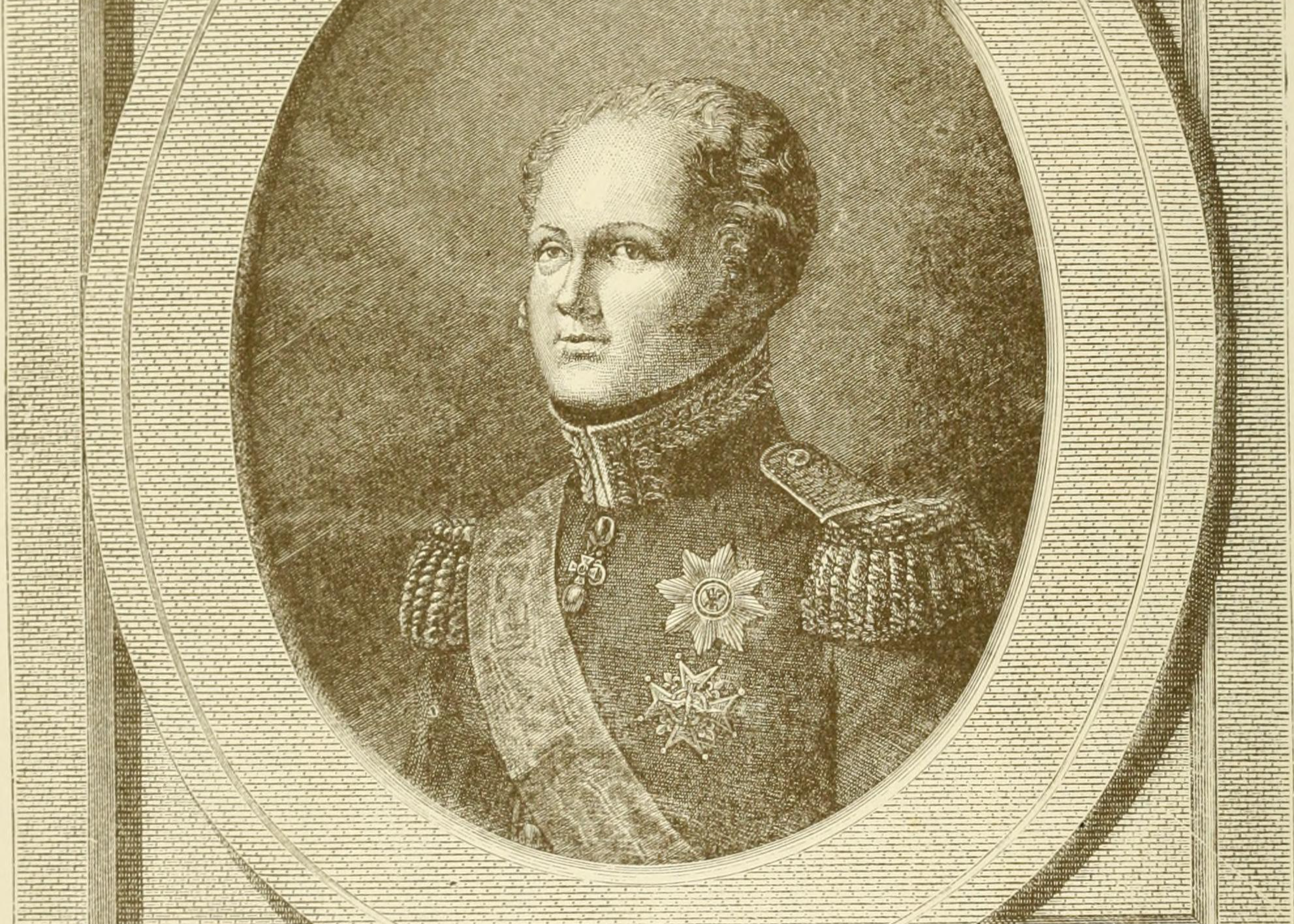 Internet Archive Book Images, Wikimedia Commons
Internet Archive Book Images, Wikimedia Commons
27. Napoleon Fired His Own Brother
Napoleon lingered in Vilna for ten days and ordered his brother, King Jérôme, to trap the Russian Prince Bagration’s forces at the Berezina River to hasten a Russian surrender. But Jérôme’s slow progress, hampered by heat and rain, allowed Bagration to escape.
Furious, Napoleon scolded his brother and sent him packing back to Westphalia. Turns out, Jérôme got the better deal.
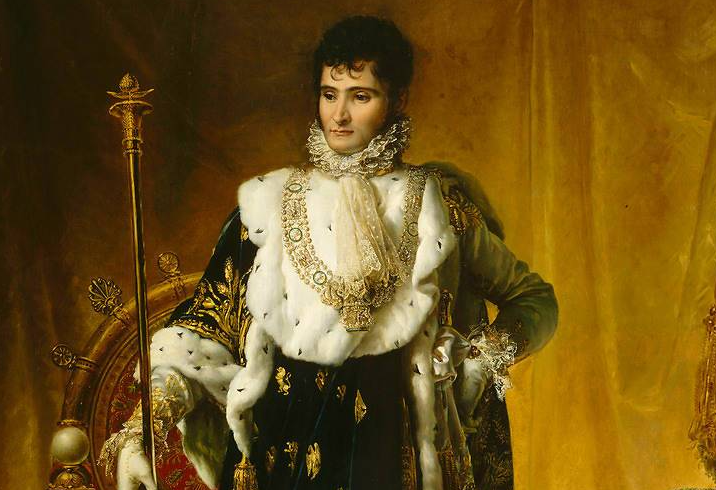 François Gérard, Wikimedia Commons
François Gérard, Wikimedia Commons

History's most fascinating stories and darkest secrets, delivered to your inbox daily.
28. A Terrible Storm Descended On The Grand Armée
On June 29, the Grand Armée got a break from the scorching Russian summer heat—but what followed was even worse. A terrible thunderstorm rolled in, turning Lithuania’s roads into impassable mud pits. Horses collapsed, wagons sank, and the army struggled to move forward, with many men losing their boots in the bottomless mud pits.
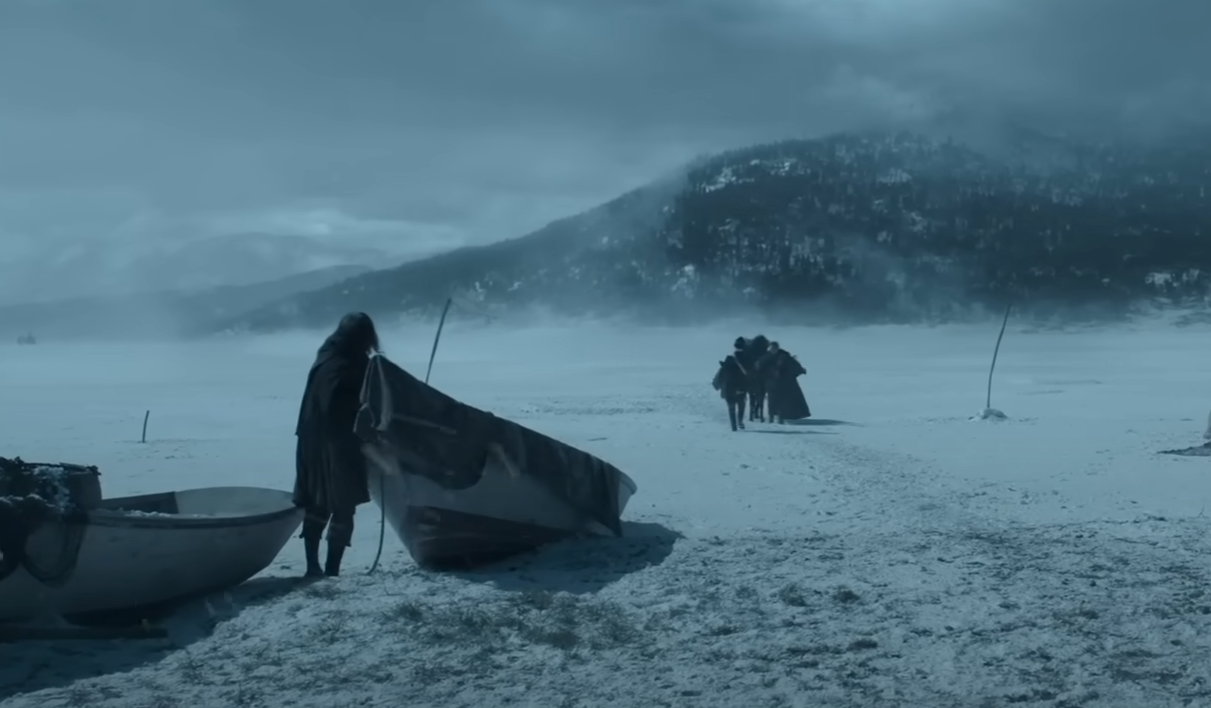 Scott Free Productions, Napoleon (2023)
Scott Free Productions, Napoleon (2023)
29. The Sky Unleashed Fury
The French artillery commander, Jean-François Boulart, described the horrific storm of June 29 as “a terrible tempest…thunder and lightning burst forth from every side”. The storm was so severe that it “struck” officers down, flooded camps, and paralyzed the Grand Armée. It was as though nature itself had conspired to stop Napoleon.
But an end to the storm was only the beginning of a worse fate.
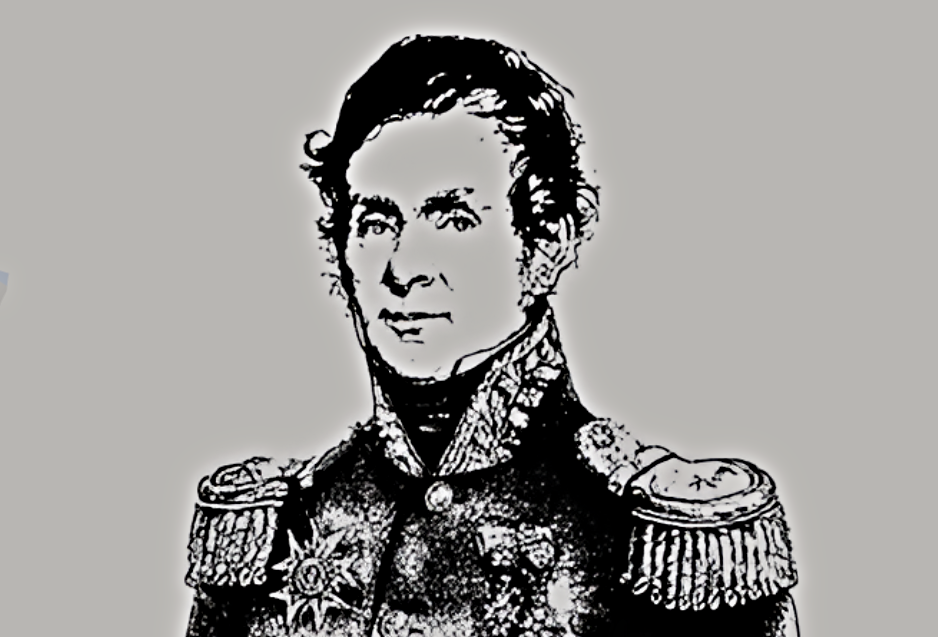 Jean Francois CHARPENTIER, Wikimedia Commons
Jean Francois CHARPENTIER, Wikimedia Commons
30. The Sun Baked The Roads Into Ruts
When the storm ended and the sun broke through the clouds, Napoleon and his slowly disintegrating Grand Armée breathed a sigh of relief. But only for a short while. The blazing sun baked the mud roads into jagged paths that broke horses’ legs and shattered wheels, further slowing down supply lines.
The officers were desperate for relief. Instead, more nightmares were coming.
31. Men Devoured Live Horses
Amidst the growing chaos, the Grand Armée's desperation reached a new low. Napoleon’s adviser, Armand de Caulaincourt, grimly recounted scenes of men descending on horses that had fallen, cutting them up for meat while the poor beasts were still alive.
Hunger had turned Napoleon’s once-mighty Grande Armée into a desperate, scavenging horde. Then things turned really bad.
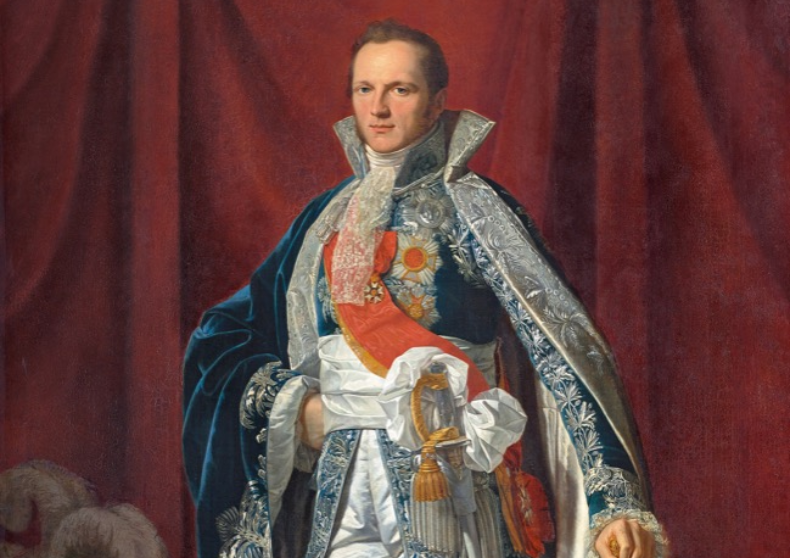 Féréol Bonnemaison, Wikimedia Commons
Féréol Bonnemaison, Wikimedia Commons
32. The Grand Armée Contracted Typhus
Just days after crossing the Neman River, shortly after the freak thunderstorm cleared, the Grande Armée faced a new, invisible enemy: typhus. Officers developed high fevers and red rashes, marking the disease’s deadly spread. For Napoleon’s army, the sickness was even more devastating than any Russian cannon.
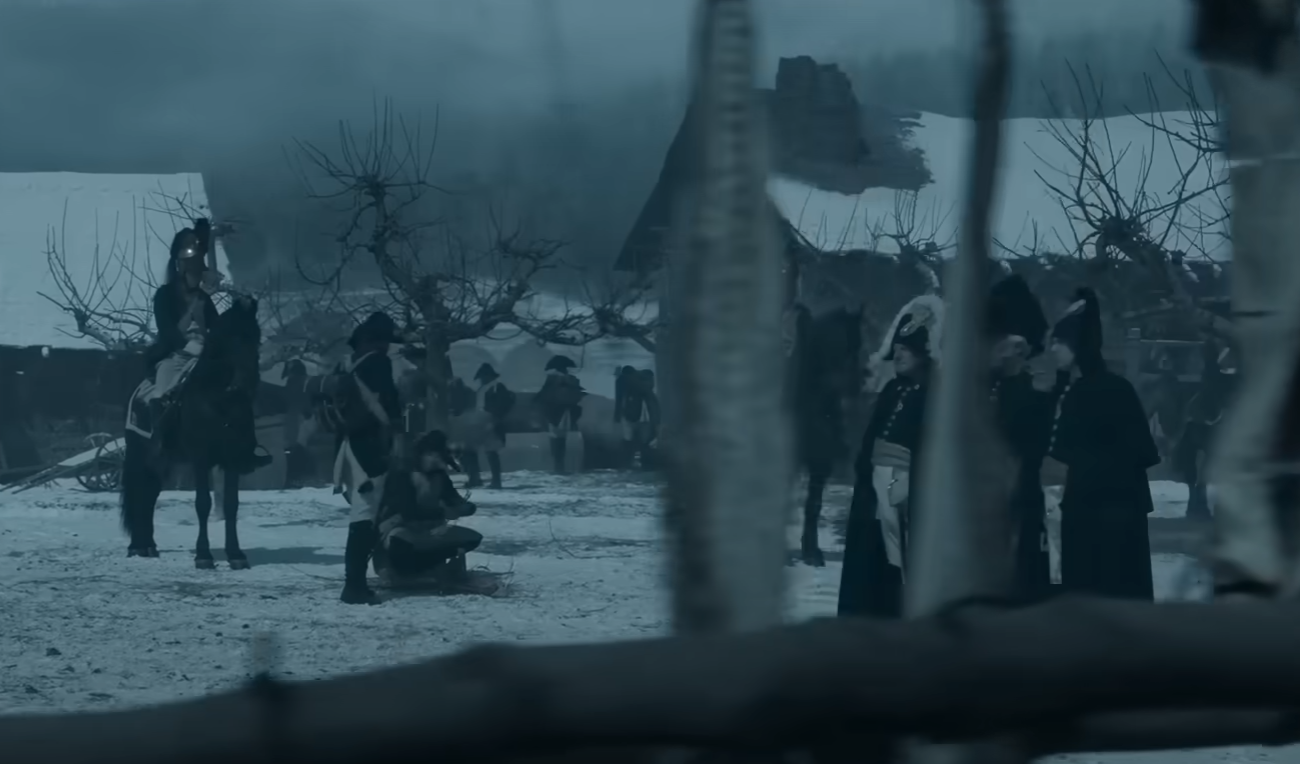 Scott Free Productions, Napoleon (2023)
Scott Free Productions, Napoleon (2023)
33. The Army Became A Mob
With hunger and disease eating away at the Grand Armée, some officers decided to take their fate into their own hands. Stragglers and deserters abandoned Napoleon and turned into a lawless, marauding mob, numbering nearly 50,000.
These desperate men waged a brutal guerrilla campaign with local peasants, further destabilizing Napoleon's supply lines and plunging the countryside into chaos.
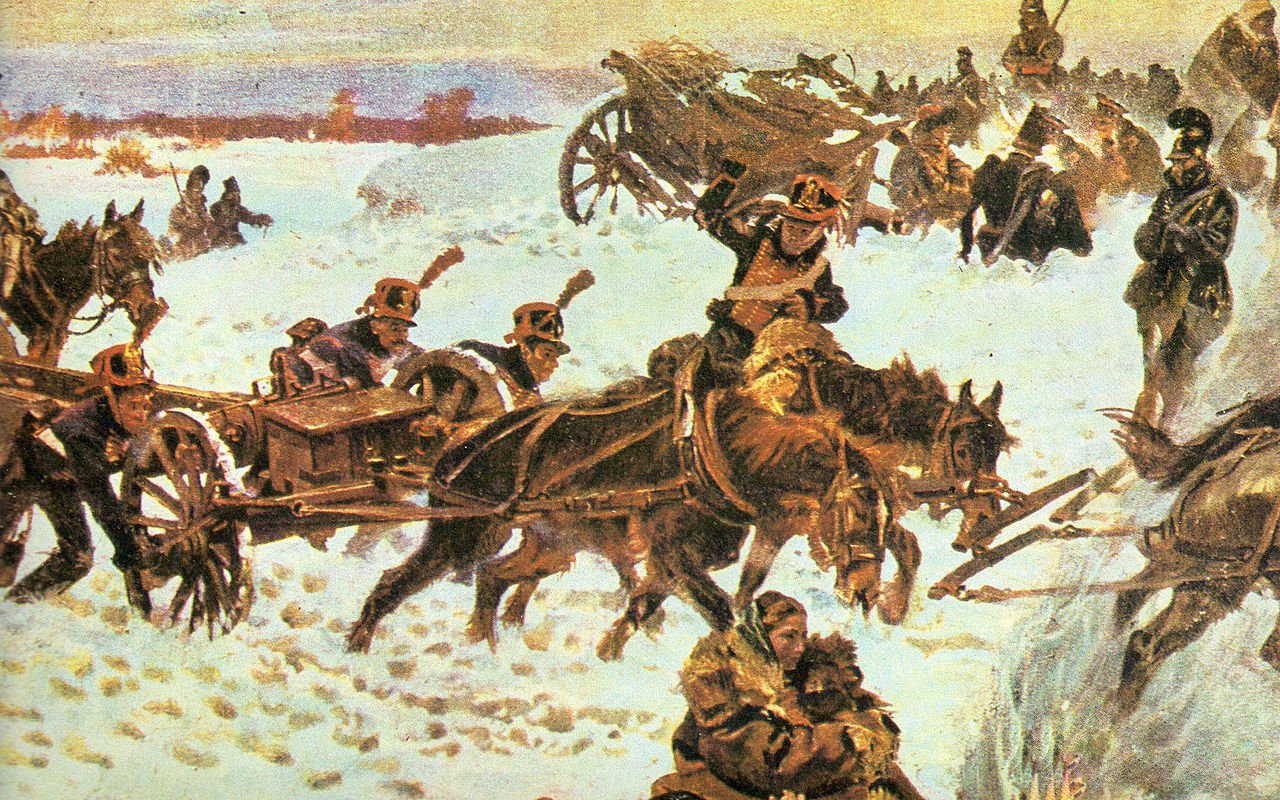 Wojciech Kossak, Wikimedia Commons
Wojciech Kossak, Wikimedia Commons

History's most fascinating stories and darkest secrets, delivered to your inbox daily.
34. The Account’s From Inside The Camp Were Grim
Lieutenant Mertens of Ney’s III Corps chronicled the hellish conditions that the Grand Armée faced as it marched further into Russian territory in pursuit of an elusive surrender. Mertens reported sweltering heat by day, freezing rain by night, and swamp-like campsites rife with disease. Dysentery and fever raged, leaving hundreds crammed into makeshift field hospitals.
But rock bottom was still a long way off.
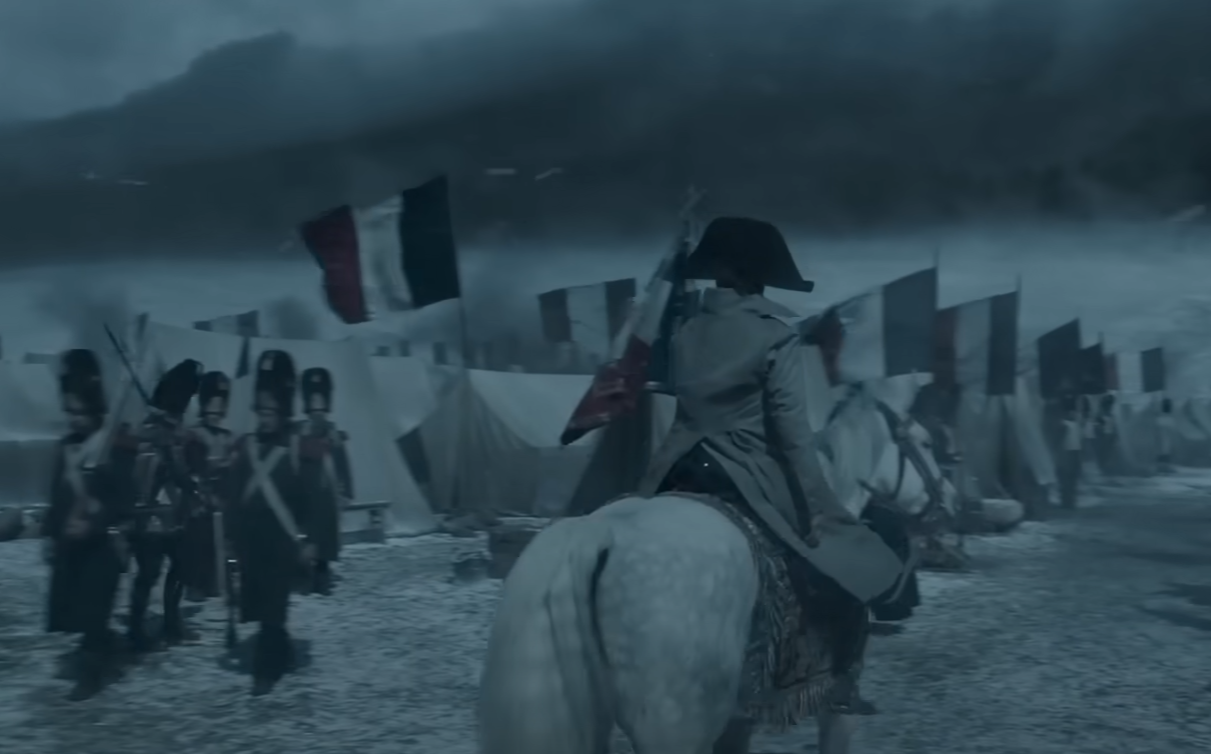 Scott Free Productions, Napoleon (2023)
Scott Free Productions, Napoleon (2023)
35. Napoleon Lost Half Of His Army In Weeks
By mid-July, disease and desertion had cost the Grande Armée 100,000 men. Within five weeks, further losses had crippled Napoleon’s fighting force, slashing his once 600,000+ Grand Armée in half.
Call it hubris or call it confidence, but Napoleon was convinced that he could win, if he could just get the Russians to meet him in open battle. That was a big if, though.
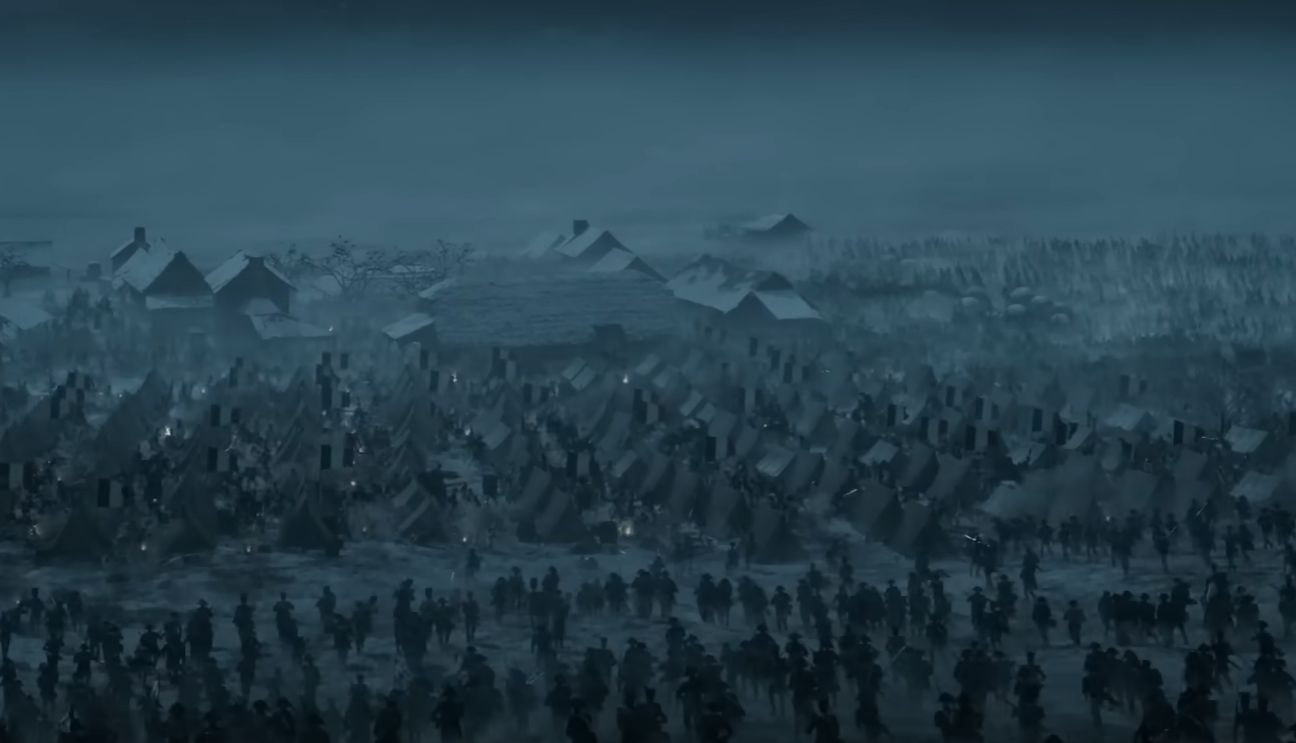 Scott Free Productions, Napoleon (2023)
Scott Free Productions, Napoleon (2023)
36. Napoleon Remained Confident Amidst The Chaos
Despite the mounting losses, Napoleon was certain that he would get the Russians to surrender. He boldly proclaimed, “I have come once and for all to finish off these barbarians of the North…They must be pushed back into their ice”. His confidence wasn’t entirely misplaced.
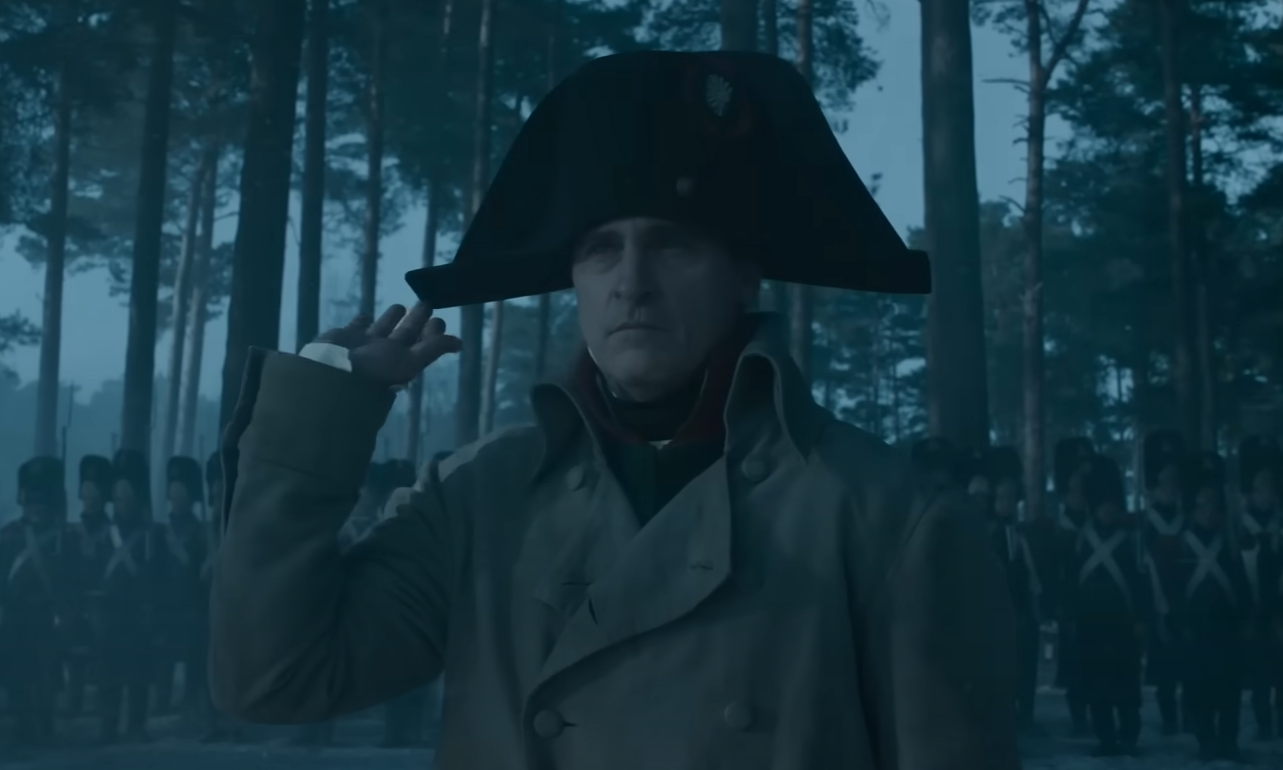 Scott Free Productions, Napoleon (2023)
Scott Free Productions, Napoleon (2023)
37. The Grand Armée Left A Trail Of Ruin
The German conscript and chronicler, Jakob Walter, described the devastation the Grand Armée left in its wake. He wrote about roads littered with corpses of men and horses, scorched villages, and abandoned cities. But his most devastating observation was a chilling ratio: ten Russian bodies for every French troop lost.
Needless to say, he didn’t share Napoleon’s optimism.
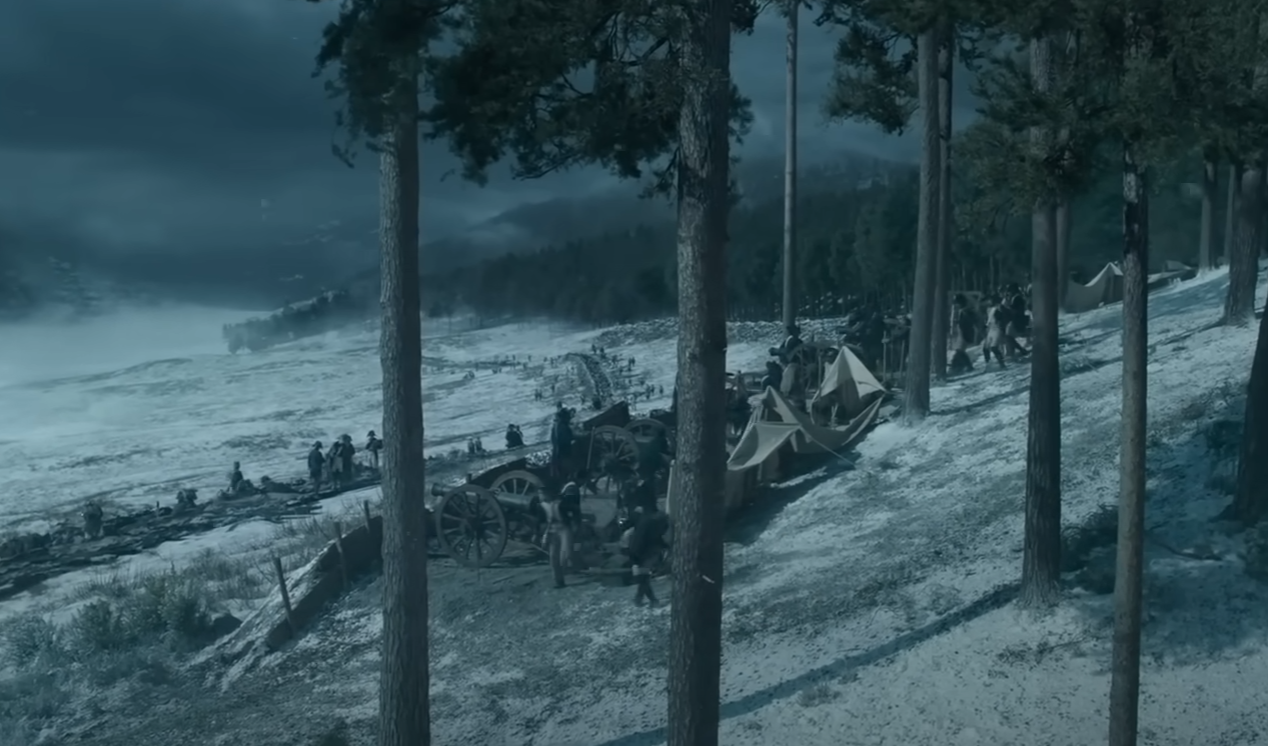 Scott Free Productions, Napoleon (2023)
Scott Free Productions, Napoleon (2023)
38. Napoleon Finally Got The Battle He Wanted
Late into the summer, the Russian forces had managed to evade Napoleon’s larger army, but thousands had still perished at Smolensk and other small clashes. The Russians were determined to avoid open battle at all costs—but they couldn't outrun him forever.
On September 7 at Borodino, just 75 miles from Moscow, the Grande Armée finally cornered the Russian resistance.
39. There Was Carnage At Borodino
With the Russians cornered, Napoleon finally had the battle he wished for. But it turned into yet another nightmare. The Battle of Borodino was a symphony of destruction and carnage, with three cannon blasts and seven musket shots every second.
The day ended with staggering casualties—70,000 men down or otherwise wounded—making it one of the bloodiest battles in Napoleon’s storied history. It was more than the Russians could bear.
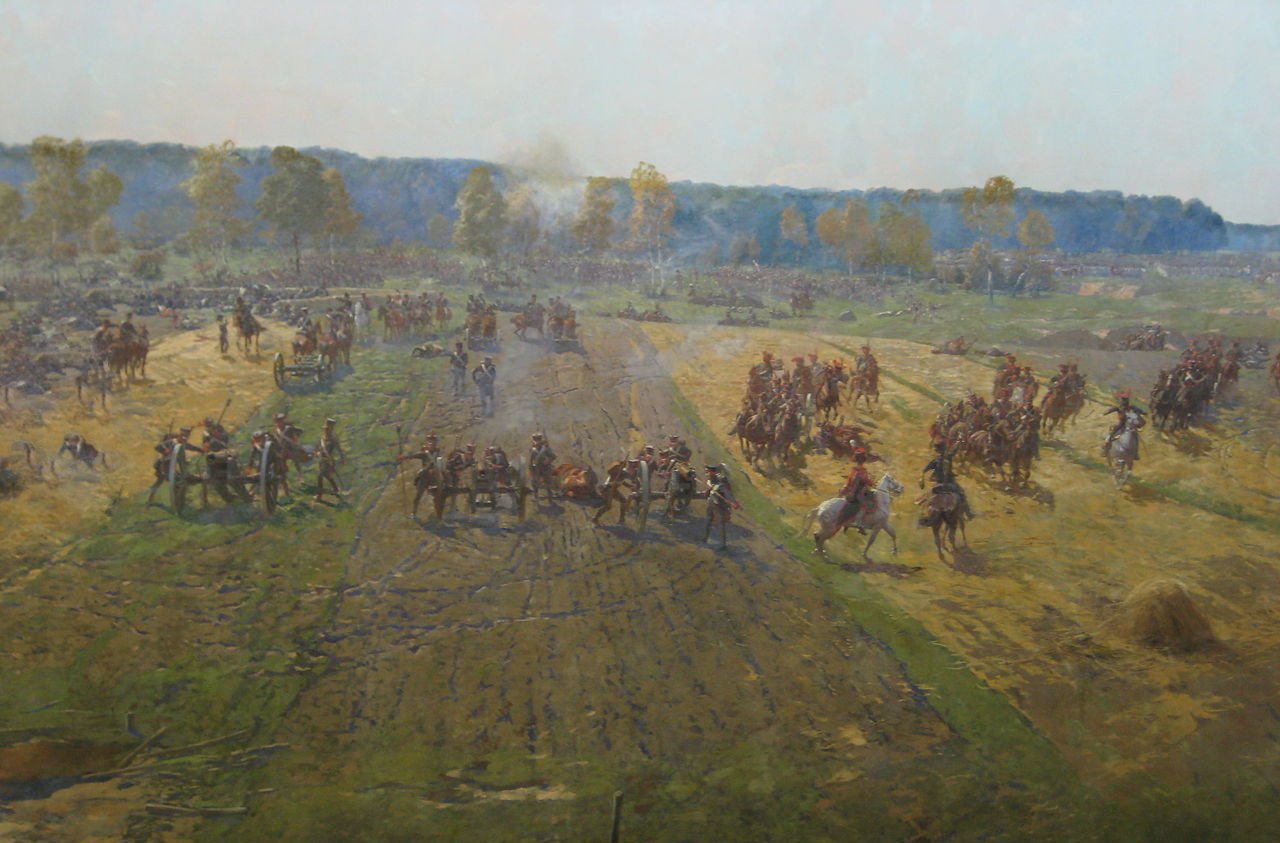 shakko, CC BY-SA 3.0, Wikimedia Commons
shakko, CC BY-SA 3.0, Wikimedia Commons

History's most fascinating stories and darkest secrets, delivered to your inbox daily.
40. Napoleon Marched Forward To Moscow—And Doom
Despite inflicting heavy losses on the Grand Armée, the Russians saw the futility in trying to defeat Napoleon in open battle. So, despite their fierce defense, they withdrew after Borodino, leaving the path to Moscow virtually unguarded. Filled with renewed confidence from his victory, Napoleon pushed his forces forward, deeper into Russia.
He was unaware what horrors lay ahead.
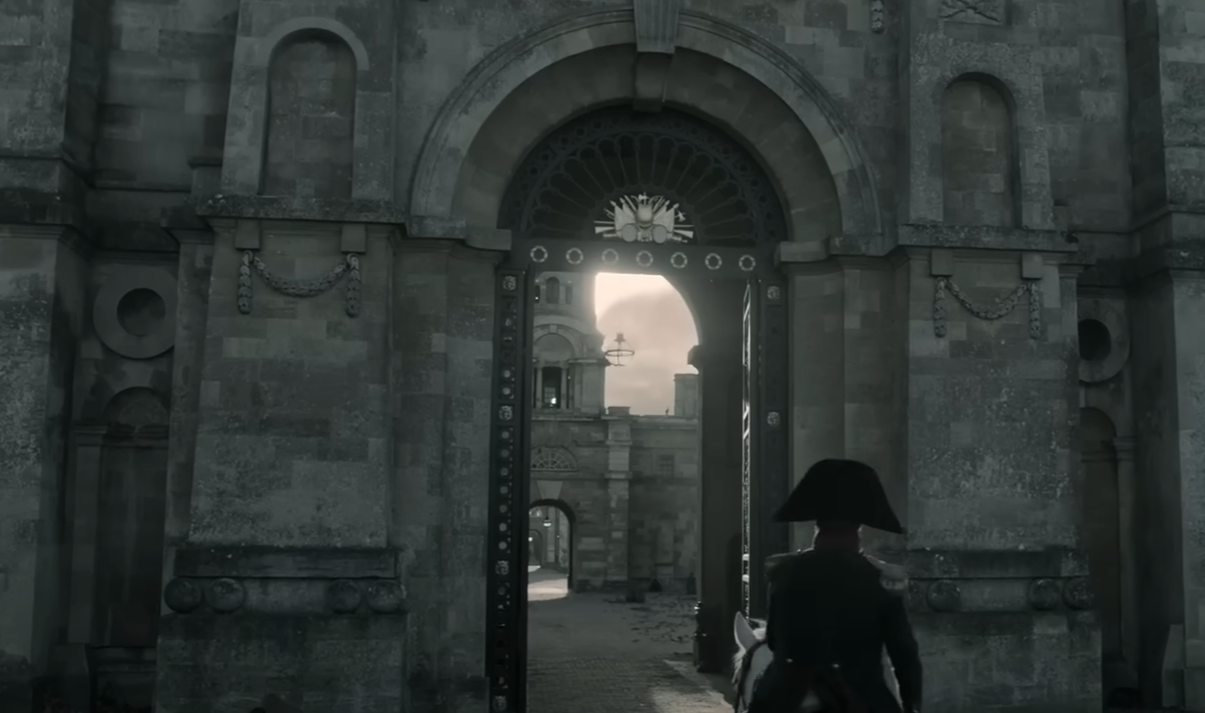 Scott Free Productions, Napoleon (2023)
Scott Free Productions, Napoleon (2023)
41. The Russians Burned Their Own City
On September 14, 1812, Napoleon entered Moscow expecting a triumphant welcome. Instead, he found nothing but ash. The Russians had abandoned the city and set fire to most of its infrastructure, just so that Napoleon couldn’t keep it.
Napoleon thought he had won—but he couldn't have been more wrong.
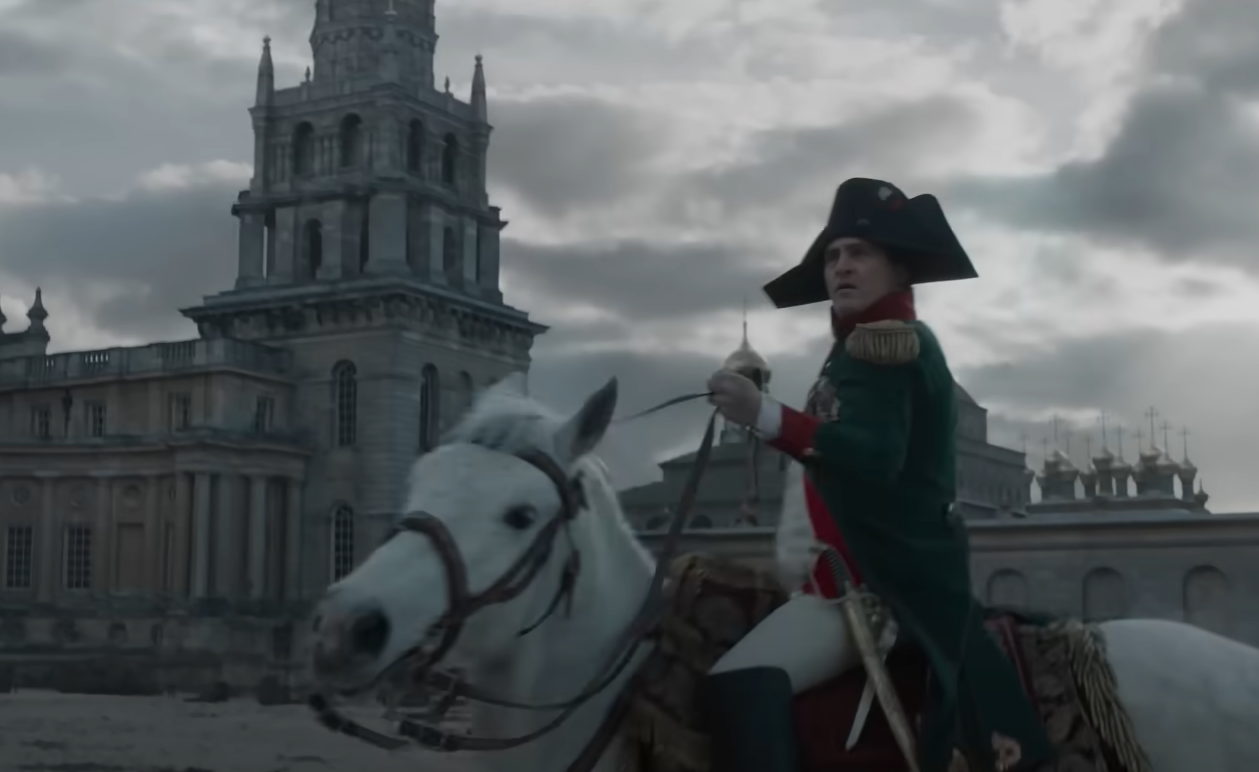 Scott Free Productions, Napoleon (2023)
Scott Free Productions, Napoleon (2023)
42. Napoleon Waited…And Waited
As Moscow burned, French officers looted the abandoned city, indulging in the hooch the Russians left behind. Meanwhile, Napoleon was certain that the abandonment of the capital meant that Tsar Alexander I had had enough, and he waited for the Russian ruler’s peace offer. It never came.
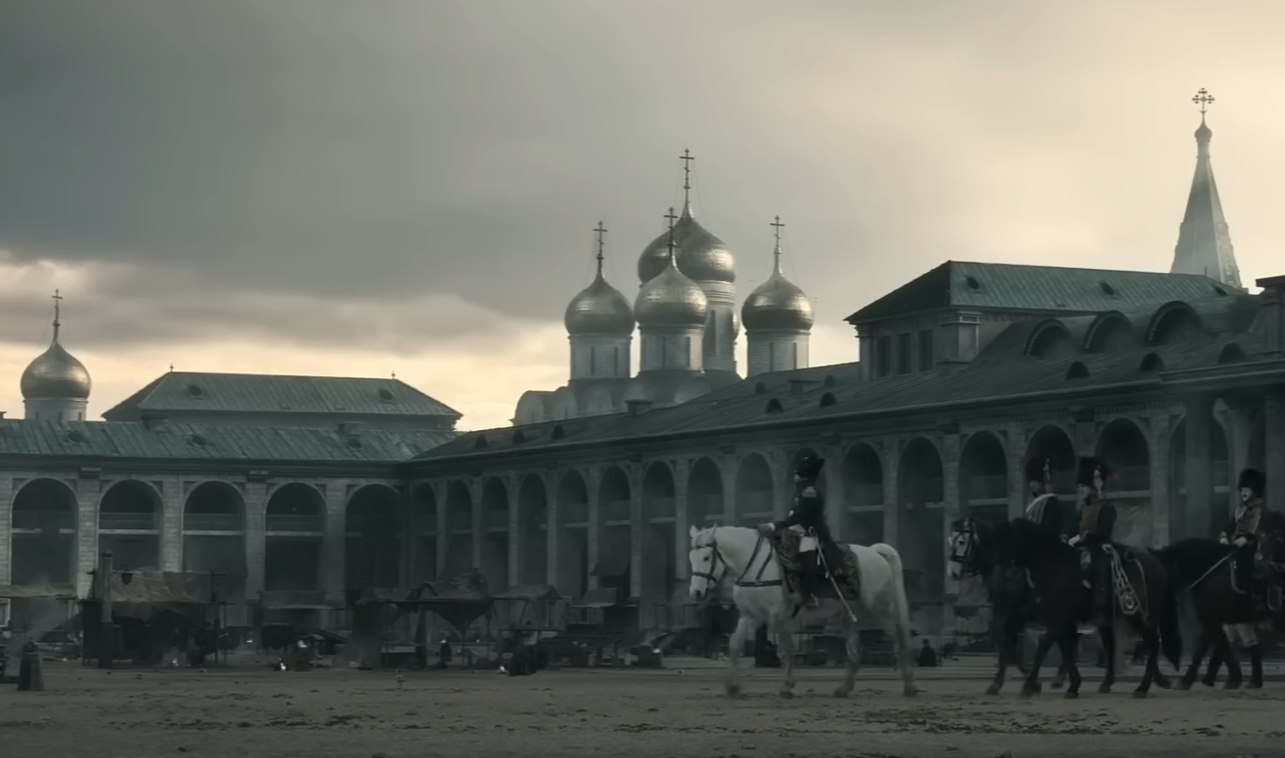 Scott Free Productions, Napoleon (2023)
Scott Free Productions, Napoleon (2023)
43. The French Decided To Retreat
Napoleon waited and waited for Alexander I’s surrender—but he waited too long. A giant snowfall signaled the onset of the dreaded Russian winter, forcing Napoleon’s hand. So, on October 19, after 36 fruitless days in Moscow, he led his officers out of the smoldering ruins, hoping to outrun the plummeting temperatures.
He would have to move fast—or freeze.
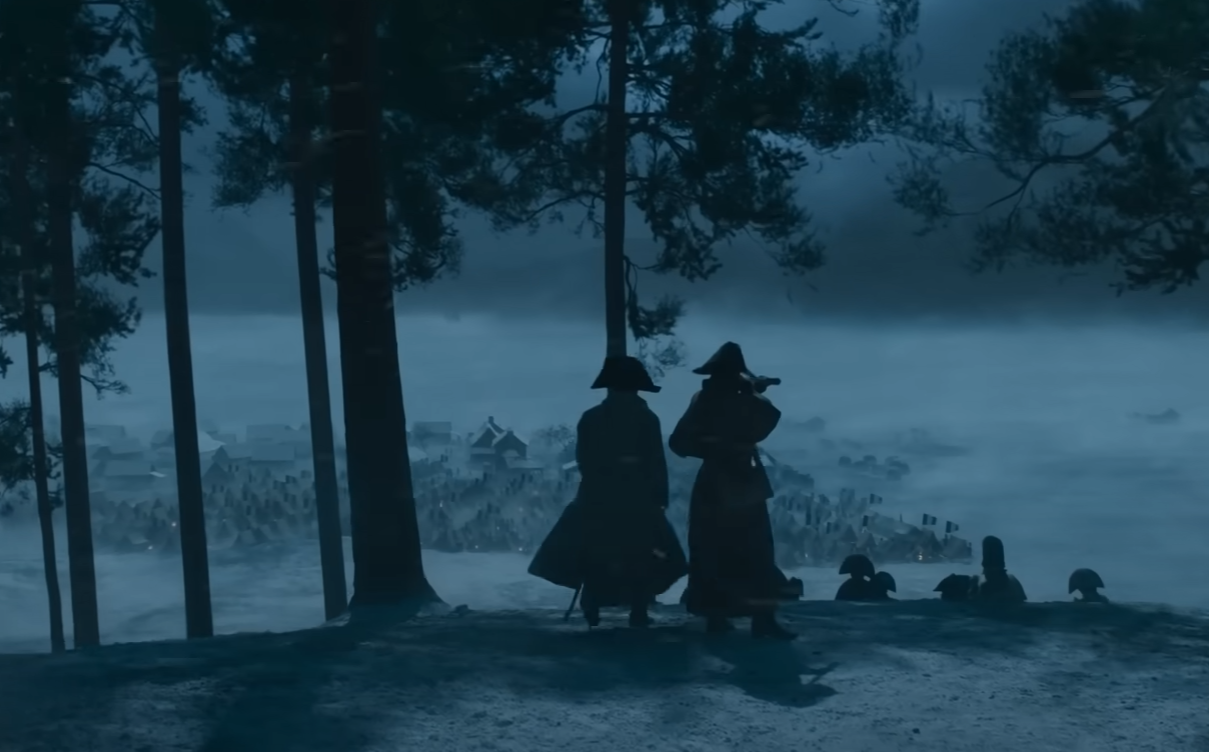 Scott Free Productions, Napoleon (2023)
Scott Free Productions, Napoleon (2023)
44. The Grand Armée Was A Ghost Of Its Former Self
By the time the Grande Armée left Moscow, disease, starvation, skirmishes, and battles had whittled the great force down to just 100,000 men. Napoleon’s once-mighty force staggered out of the city as a fraction of what it had once been. And only a fraction of that fraction would make it back home to tell the tale.
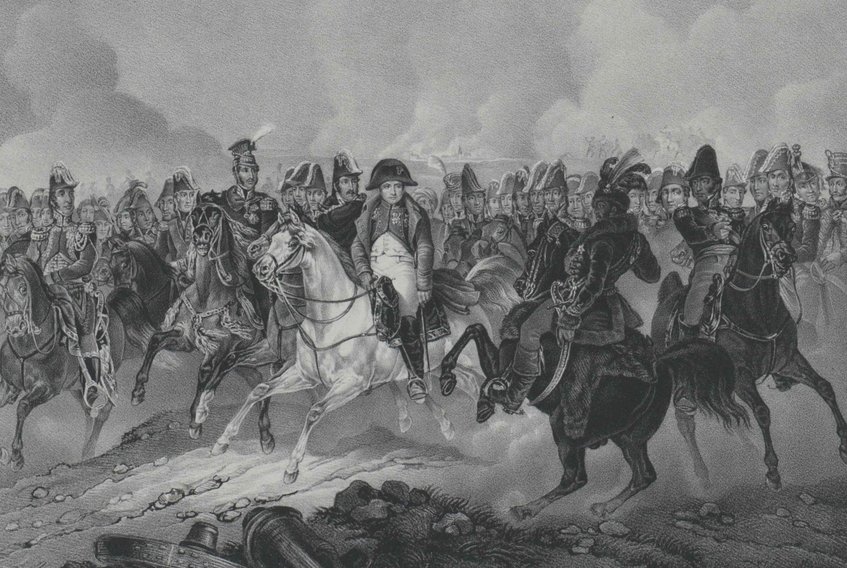 Austrian National Library, Picryl
Austrian National Library, Picryl
45. The Russians Pushed The French Further North
Napoleon originally planned to retreat southward in an effort to escape the worst of Russia’s bitter winter. But the Russians anticipated his plan and intercepted his exhausted and demoralized officers at Maloyaroslavets. Though the Russians lost this battle, they managed to force the Grand Armée back onto their original route, through ruin and into the unforgiving cold.
That would be enough.
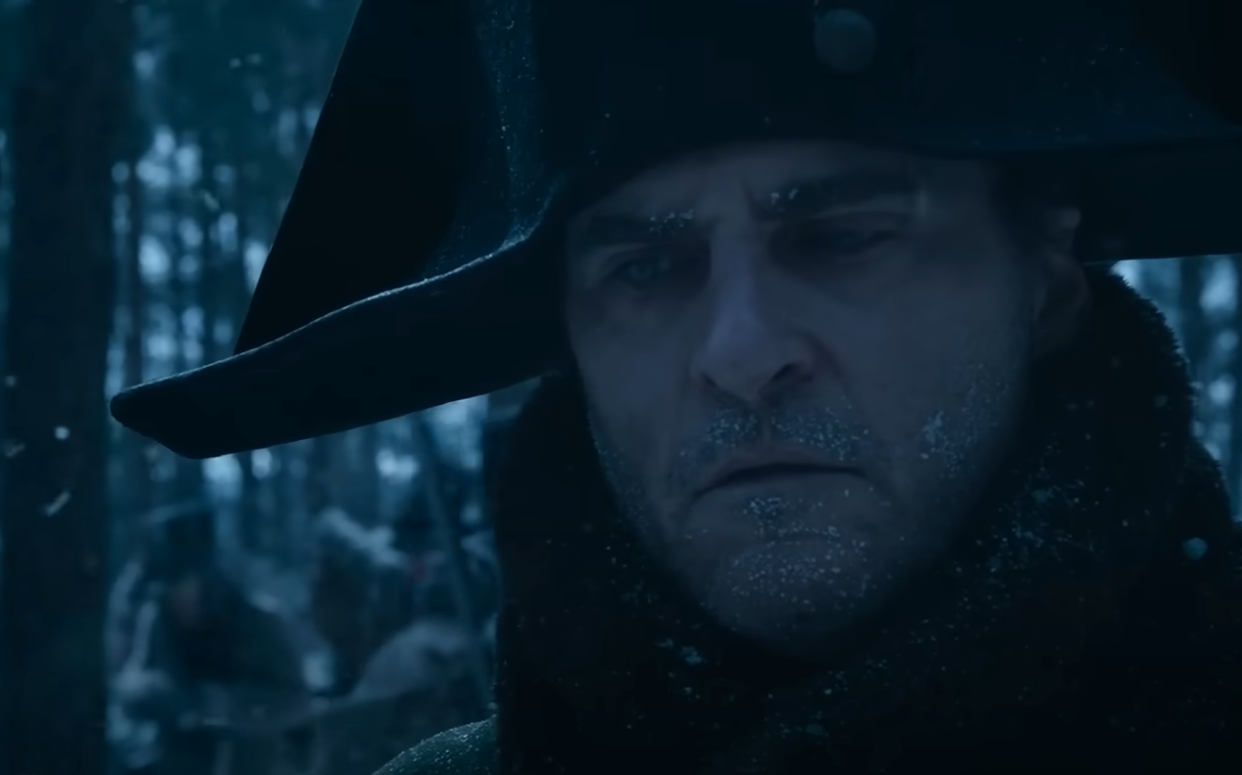 Scott Free Productions, Napoleon (2023)
Scott Free Productions, Napoleon (2023)

History's most fascinating stories and darkest secrets, delivered to your inbox daily.
46. The French Retraced Their Ruined Steps
As the Grand Armée retraced its steps, the land offered no reprieve. They had already foraged and pillaged all of the resources along the route while entering Russia, and what little remained had succumbed to the cold. Without food and water, horses fell in droves while Russian attacks plagued the retreating army’s flanks and rear.
Then the Grand Armée stumbled across a truly horrific scene.
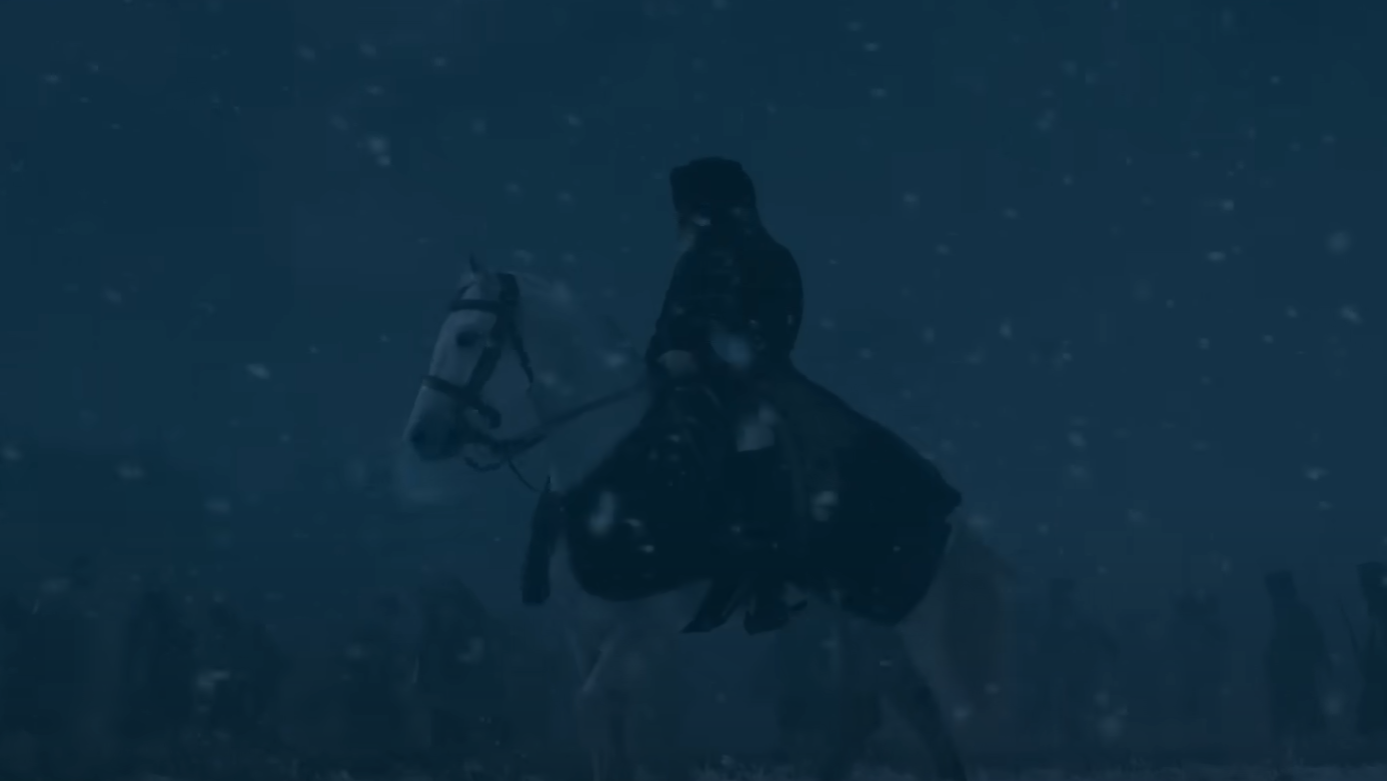 Scott Free Productions, Napoleon (2023)
Scott Free Productions, Napoleon (2023)
47. The French Marched Over Bodies At Borodino
Napoleon’s retreat quickly disintegrated into a chaotic scramble, as his forces deserted or simply fell behind. Then, what little was left of his men's morale hit rock bottom when they passed through the battlefield at Borodino. Thousands of rotting corpses—their comrades and enemies both—lay unburied, their remains devoured by wolves.
But somehow, it could still get worse.
 Vasily Vereshchagin, Wikimedia Commons
Vasily Vereshchagin, Wikimedia Commons
48. Winter Arrived
Shortly after passing through the hellish scene at Borodino, Napoleon and his Grand Armée encountered yet another enemy: the Russian winter. An unusually early and harsh cold front moved in, unleashing howling winds, sub-zero temperatures, and heavy snow.
Before long, hunger and disease seemed like a cakewalk compared to frostbite and hypothermia.
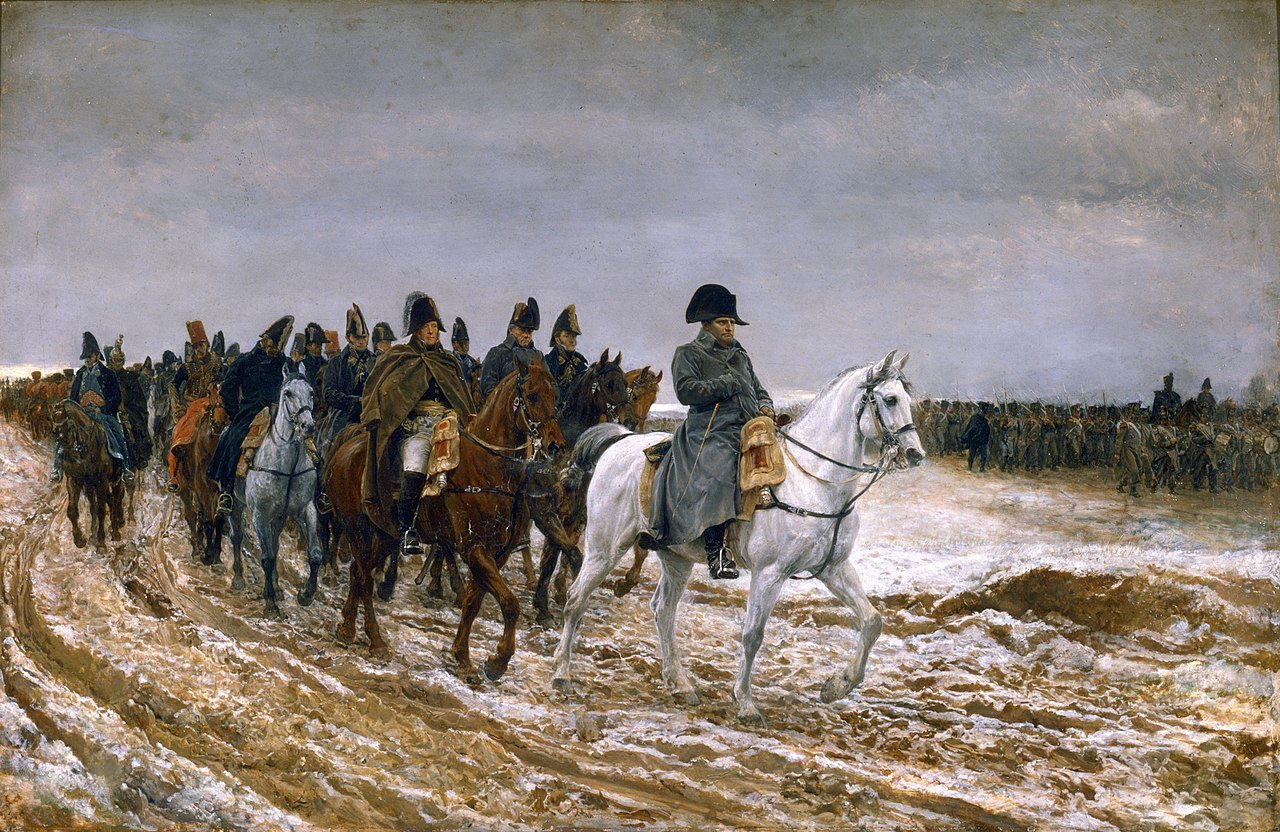 Jean-Louis-Ernest Meissonier, Wikimedia Commons
Jean-Louis-Ernest Meissonier, Wikimedia Commons
49. The Army Froze In Place
As the temperatures plunged, thousands of men and horses succumbed to the cold. French officer Caulaincourt recounted the impact of the Russian winter on the ill-prepared Armée: “One constantly found men who, overcome by the cold, had been forced to drop out and had fallen to the ground, too weak or too numb to stand”.
But believe it or not, the Grand Armée still hadn’t seen true horror yet.
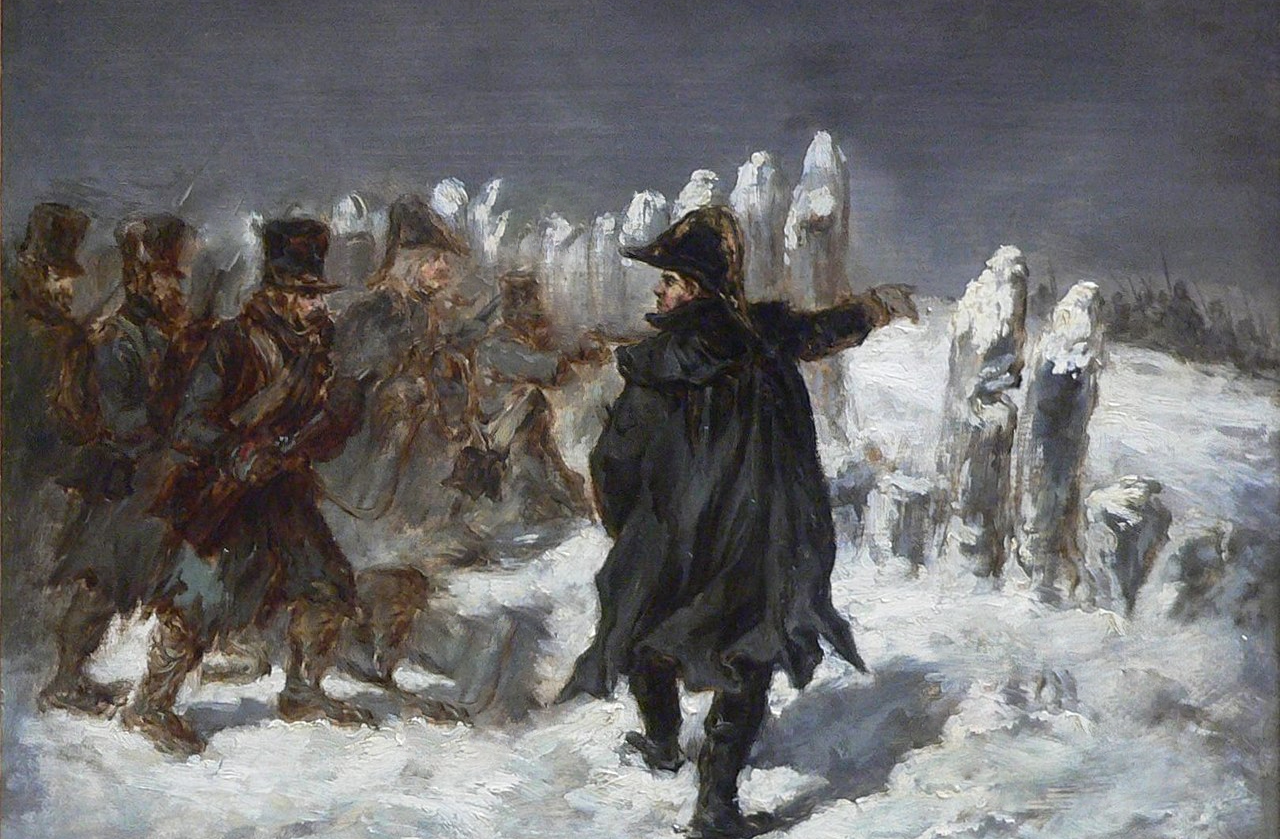 Auguste Raffet, Wikimedia Commons
Auguste Raffet, Wikimedia Commons
50. They Crawled Inside Animal Carcasses
Survival instincts took over from martial training as officers resorted to horrifying measures to stay warm. Some split open the carcasses of expired animals, crawling inside for warmth. These grim measures reflected the unthinkable desperation of Napoleon’s broken army.
Animal corpses, however, were like the Four Seasons compared to some of the men's accomadations.
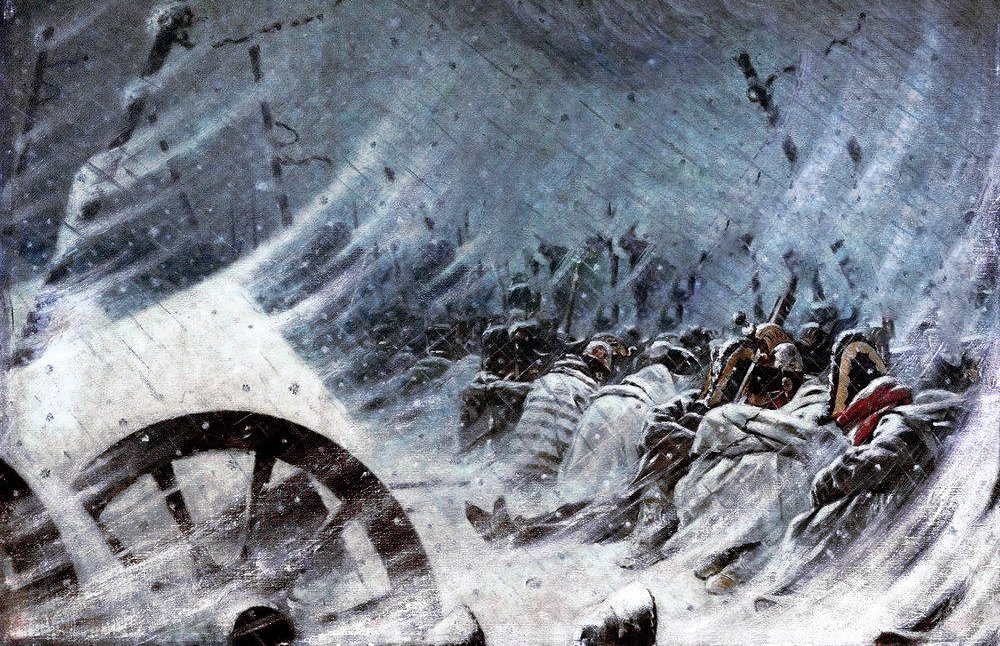 Vasily Vereshchagin, Wikimedia Commons
Vasily Vereshchagin, Wikimedia Commons
51. They Made Walls Of Corpses
As temperatures continued falling, reaching as low as -35°C, the French officers sought any source of insulation they could find. Any source at all. Allegedly, the Grand Armée resorted to using the frozen bodies of their fallen comrades to insulate windows and block the icy winds. That wasn’t all they did with those bodies.
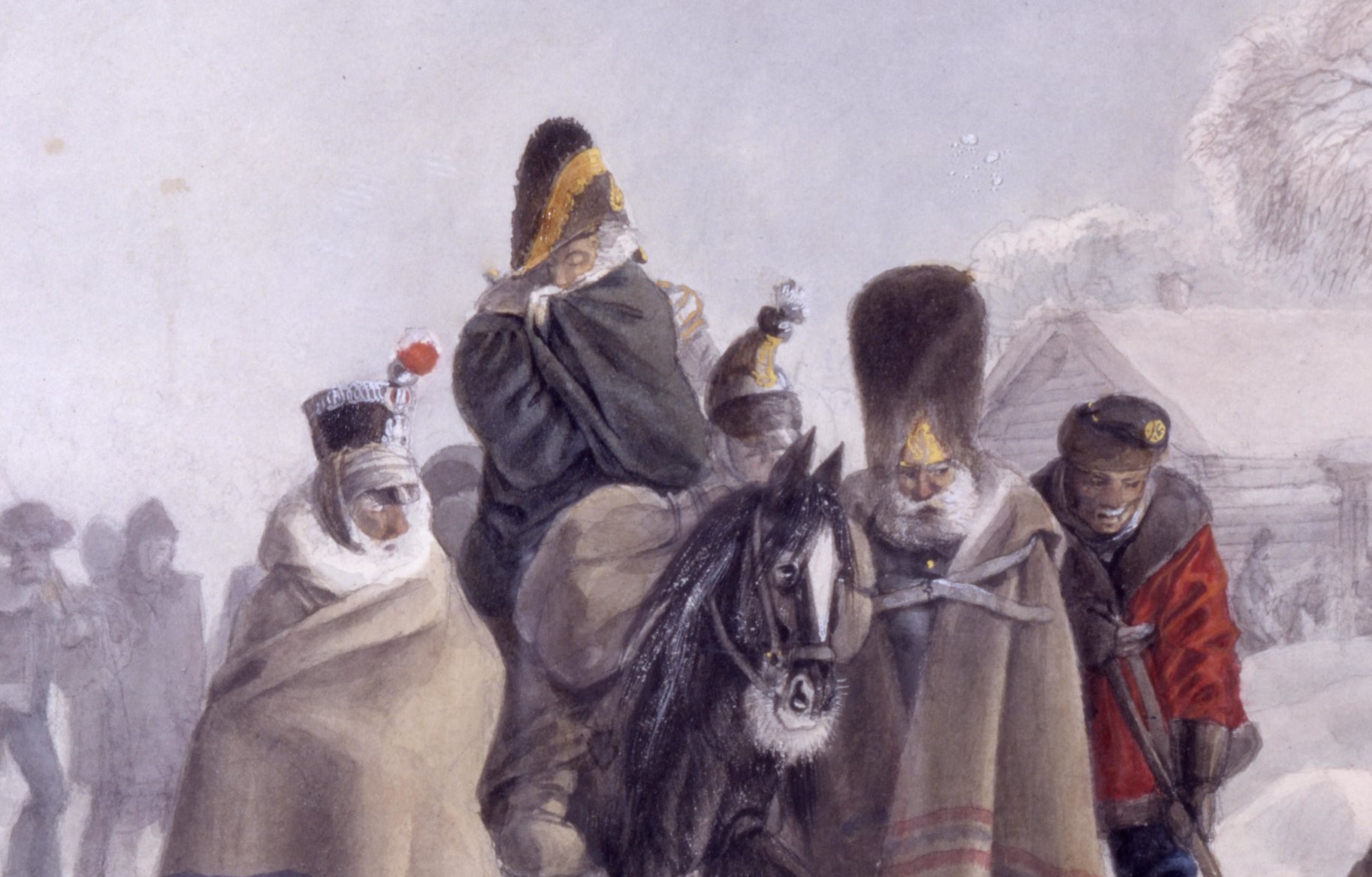 Christian Wilhelm von Faber du Faur, Wikimedia Commons
Christian Wilhelm von Faber du Faur, Wikimedia Commons

History's most fascinating stories and darkest secrets, delivered to your inbox daily.
52. The French Ate Their Own To Survive
The situation within the Grand Armée’s retreat was so desperate that they resorted to doing the unthinkable. Reports emerged of officers turning to human flesh to stave off starvation, a final act of desperation in a campaign defined by suffering. In fact, they practically became a walking zombie army.
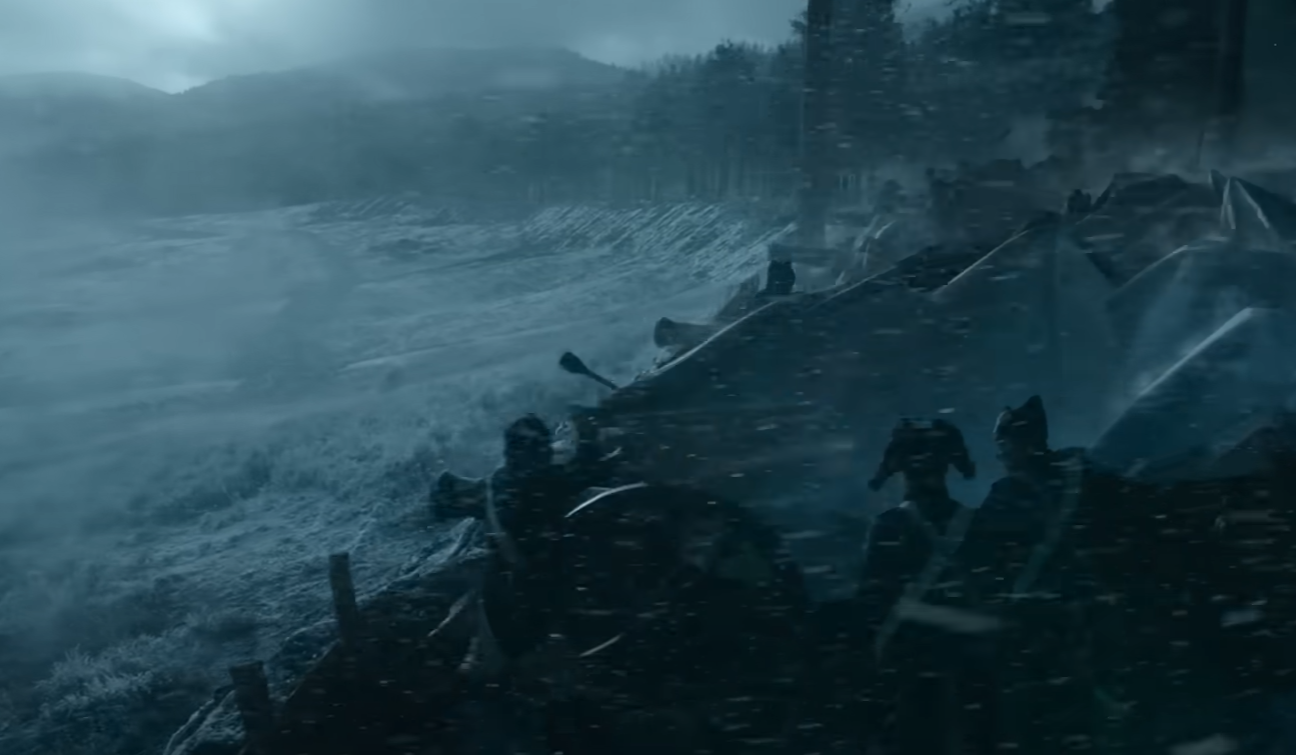 Scott Free Productions, Napoleon (2023)
Scott Free Productions, Napoleon (2023)
53. The Grand Armée Consumed The Living
Hunger drove the retreating forces of the Grand Armée to horrifying extremes. In one of the most chilling accounts from the disastrous invasion, officers are said to have eaten the flesh of horses…while they were still alive. They even drained blood from the horses to turn into black pudding. But it still wasn’t enough.
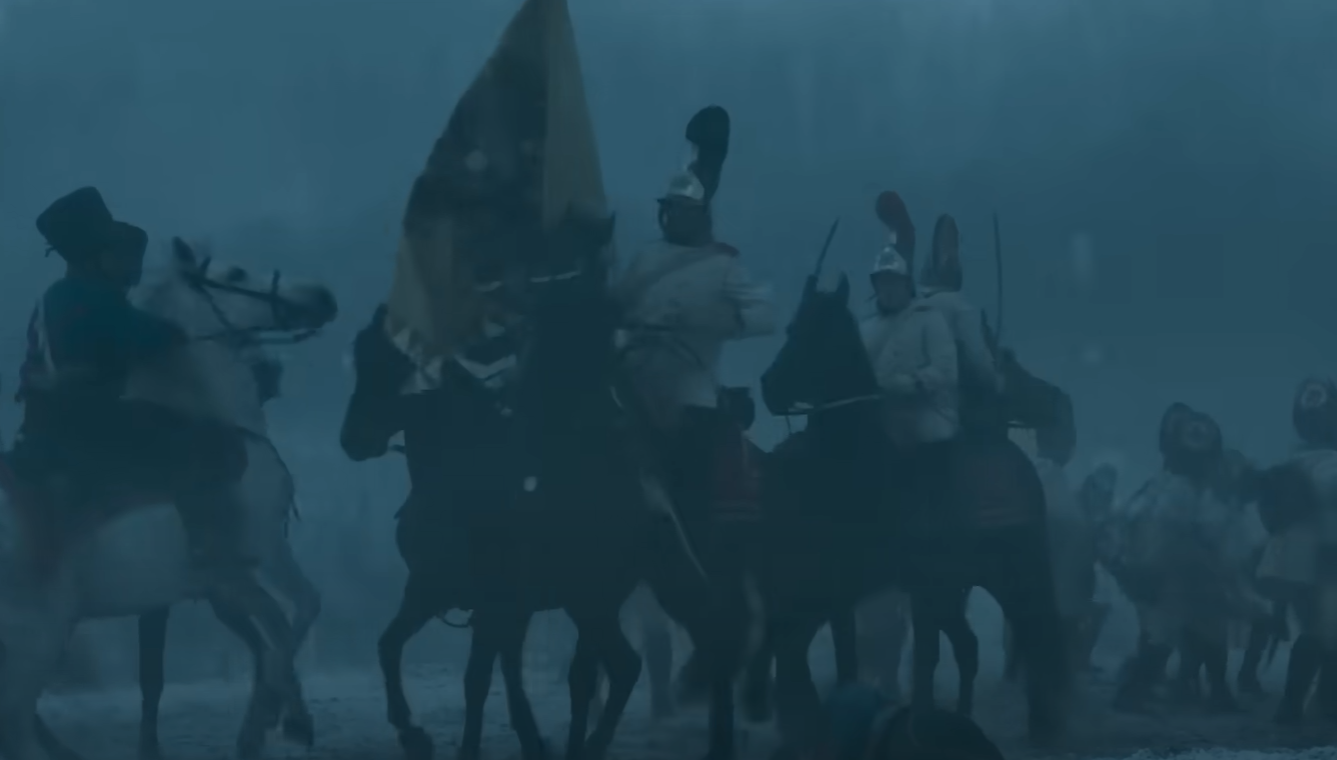 Scott Free Productions, Napoleon (2023)
Scott Free Productions, Napoleon (2023)
54. The Marched To An Icy Grave
Even the men who managed to eat still had to survive the cold—and most could not. Soldiers suffered snow blindness, and their breath turned to icicles as it left their mouths and nostrils. Many more simply collapsed in the snow, never to rise again. For those who strayed from their units, an icy grave was all but guaranteed.
Any semblance of a cohesive army was gone.
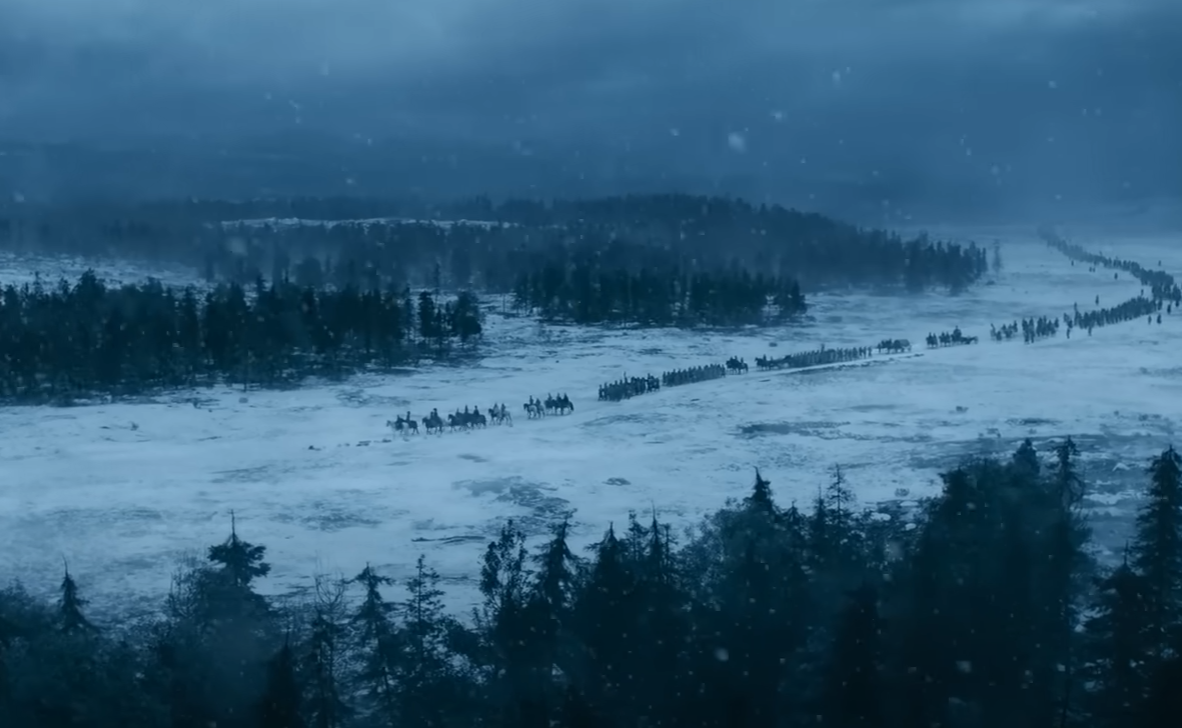 Scott Free Productions, Napoleon (2023)
Scott Free Productions, Napoleon (2023)
55. It Was Every Man For Himself
One of the last casualties of Napoleon’s disastrous invasion and retreat was comradeship. As temperatures dipped into the glacial range, men began charging each other gold coins to share a fire, while brutal fights broke out over scarce food and water.
The once-disciplined Grande Armée had become a chaotic and cutthroat mob to the last man.
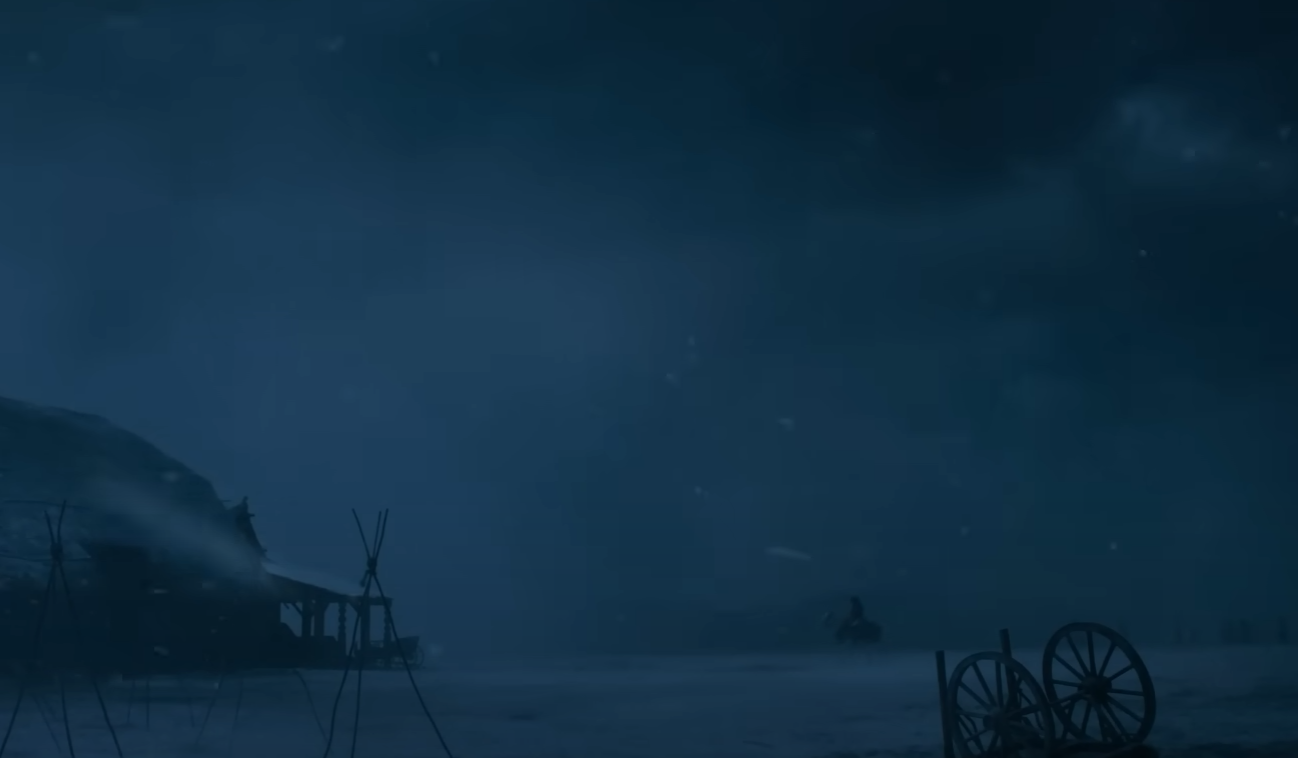 Scott Free Productions, Napoleon (2023)
Scott Free Productions, Napoleon (2023)
56. Just 10% Of The Grand Armée Remained
By November 9, Napoleon reached Smolensk with only 60,000 men still standing. Nearly all the horses had perished, and the army had long since abandoned the artillery. The merciless Russian territory had shattered the once-mighty cavalry and artillery of the Grande Armée beyond recovery.
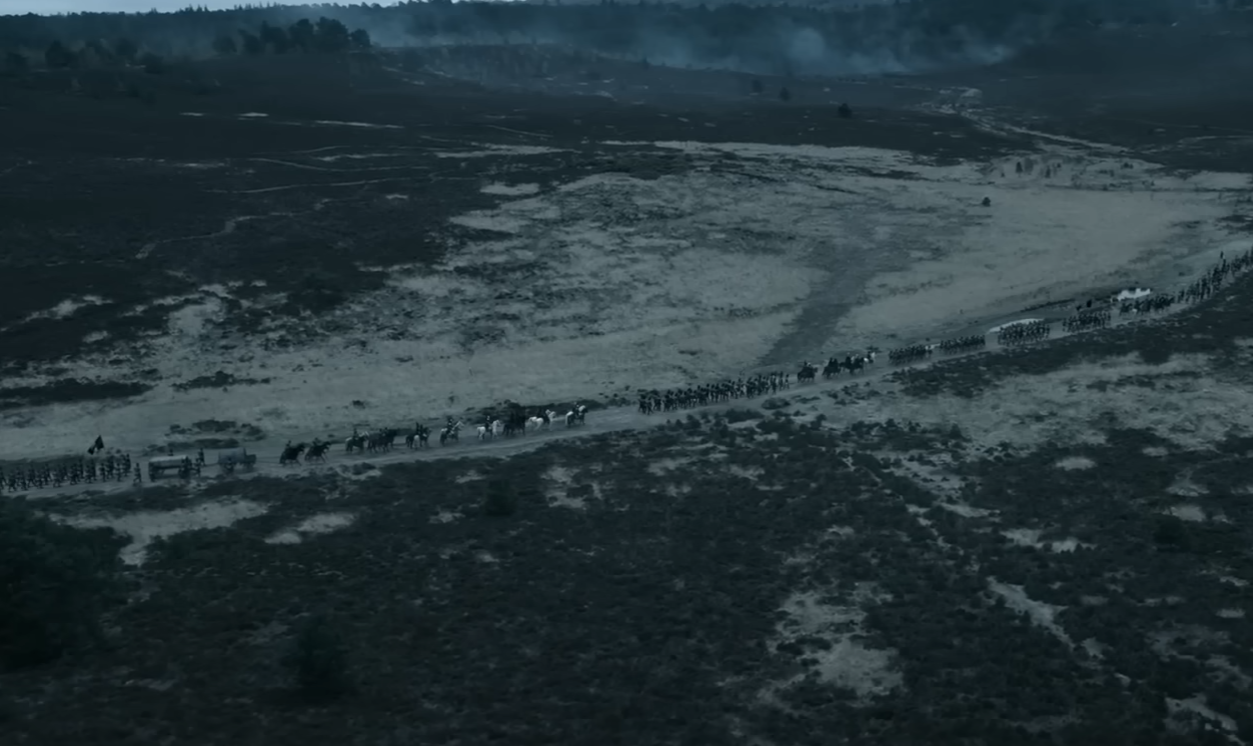 Scott Free Productions, Napoleon (2023)
Scott Free Productions, Napoleon (2023)
57. Only The Early Birds Got The Worm
The remnants of the Grande Armée reached Smolensk in waves. The first to arrive received some limited good news, stumbling upon a fair amount of food. However, they were ravenous beyond control and, within the first day, ate everything in sight. By the time the army’s rear guard arrived, there was nothing left.
The French weren’t the only ones to suffer.
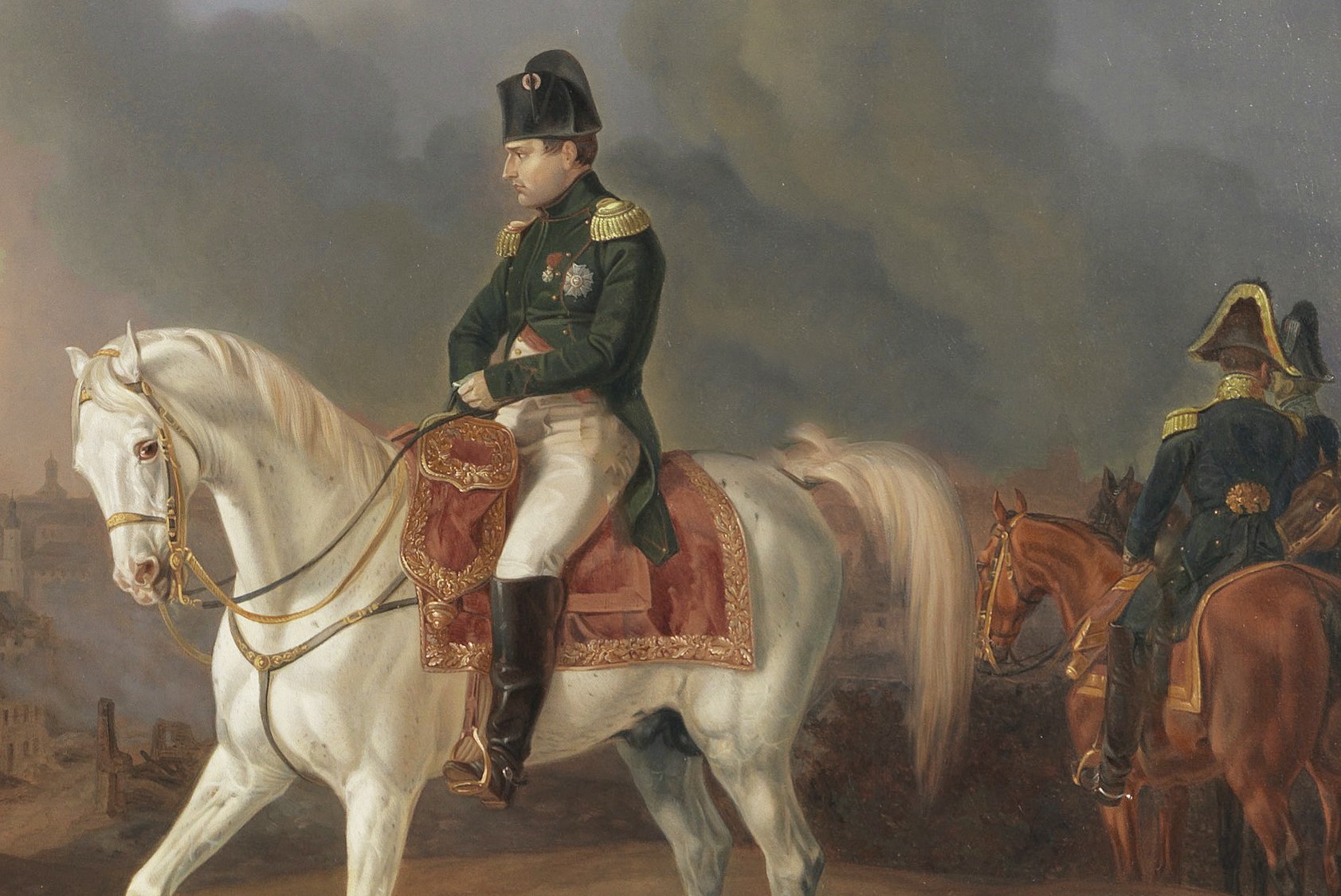 Albrecht Adam, Wikimedia Commons
Albrecht Adam, Wikimedia Commons

History's most fascinating stories and darkest secrets, delivered to your inbox daily.
58. The Russian officers Almost Suffered Heavy Losses
The only consolation for the demoralized Grand Armée was that the Russian winter didn’t discriminate: it slaughtered all, equally. The Russian army, commanded by Mikhail Kutuzov, dwindled from 105,000 to just 60,000.
And somehow, in the midst of the cold and starvation, the Russians and French still managed to fight each other.
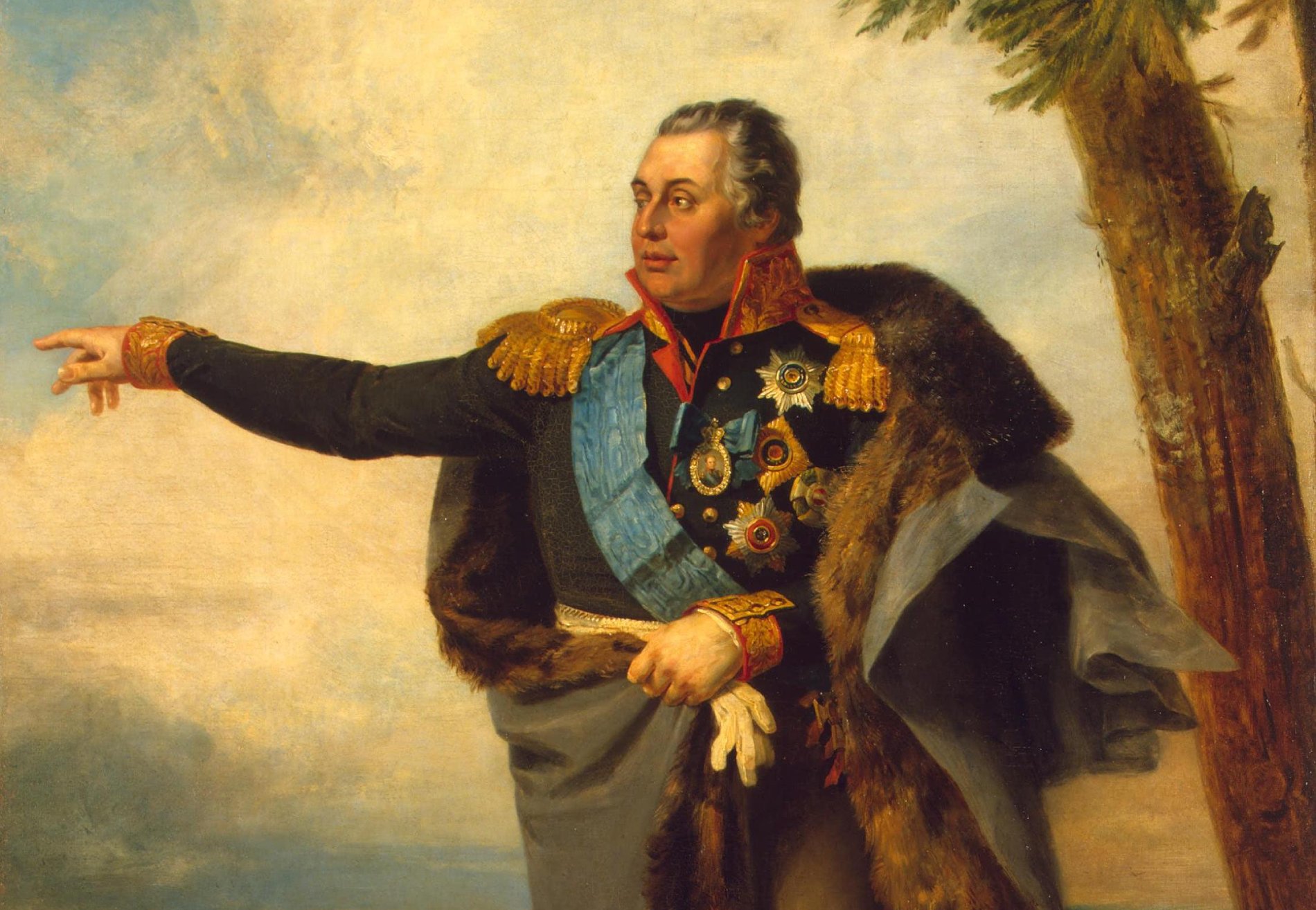 George Dawe, Wikimedia Commons
George Dawe, Wikimedia Commons
59. The French Secured A Much-Needed Victory
Between November 15 and 18, what remained of French and Russian forces clashed in a series of skirmishes in the Battle of Krasnoi. While the Russians hesitated in launching a full-on attack against Napoleon—diminished as he was—they still inflicted heavy losses. By the end of it, Napoleon had lost another 30,000.
He was quickly running out of options to escape Russia with his life.
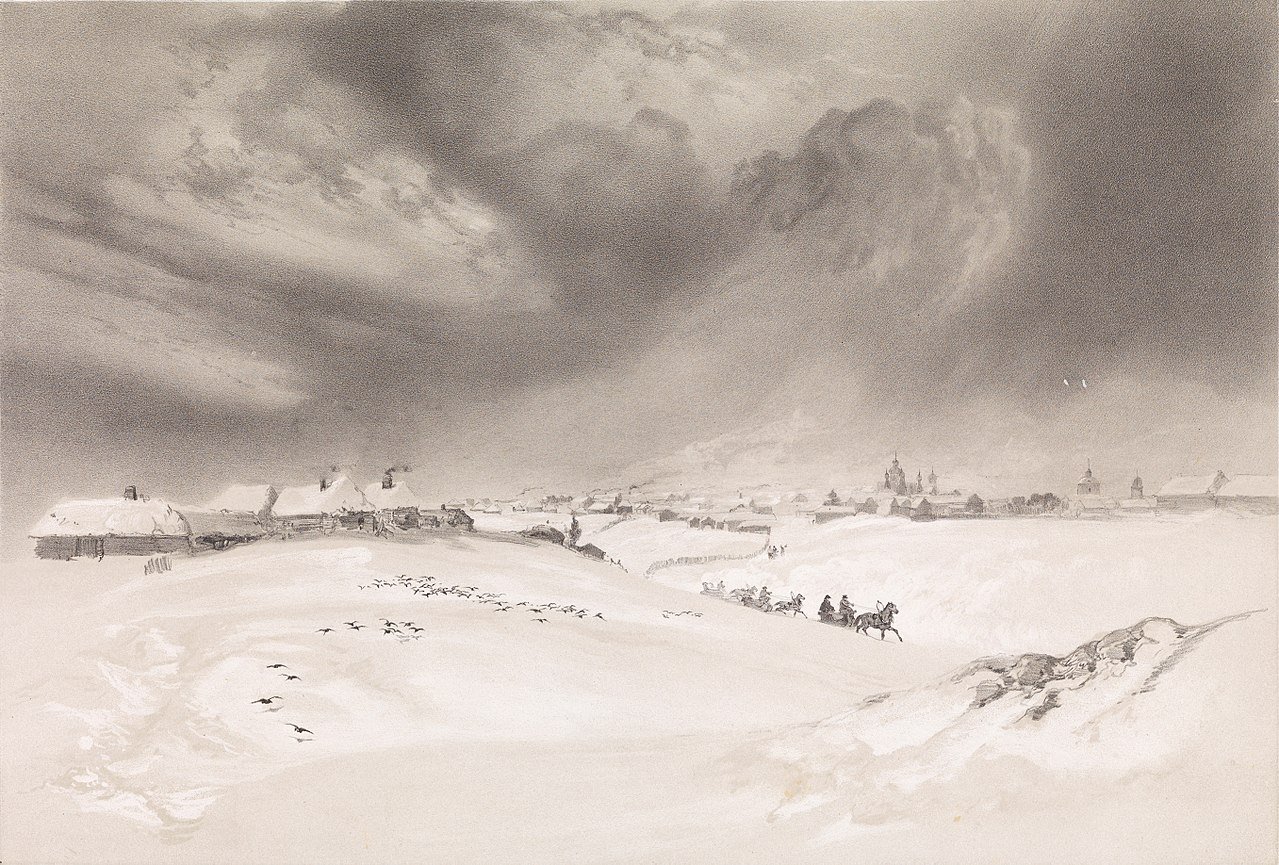 Léon Sabatier, Wikimedia Commons
Léon Sabatier, Wikimedia Commons
60. The French Faced Complete Destruction
In late November, the Grande Armée faced complete annihilation as they arrived at the Berezina River. The harrowing crossing, in freezing conditions and under relentless attack, was a desperate bid for survival against overwhelming odds.
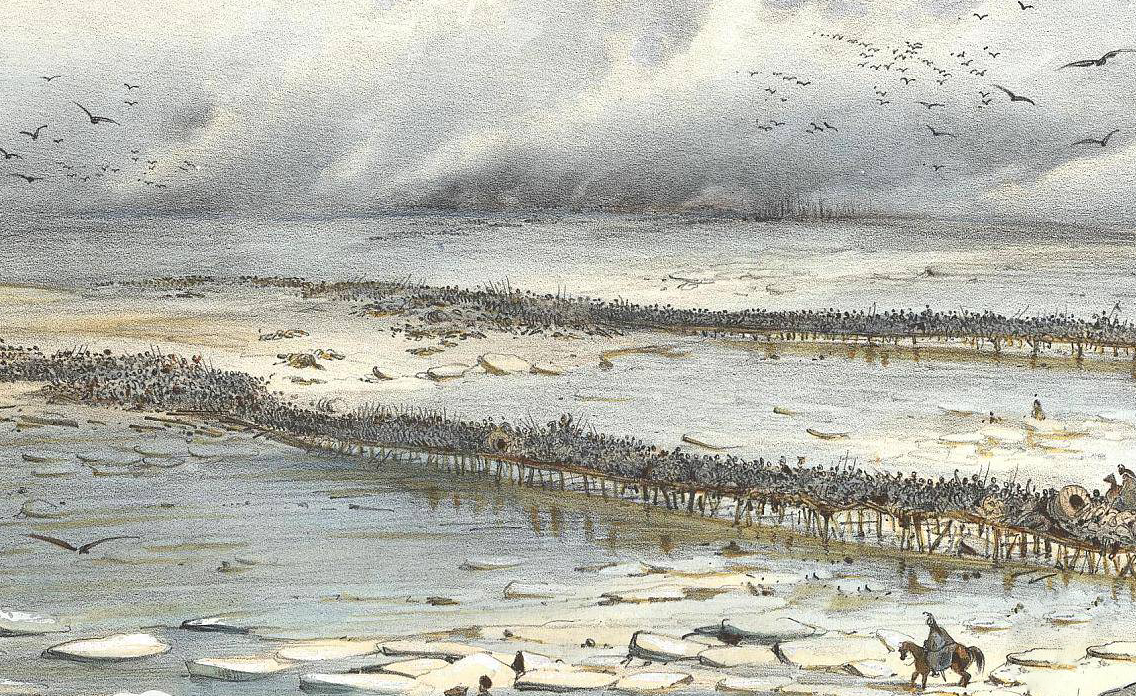 Victor Adam, Wikimedia Commons
Victor Adam, Wikimedia Commons
61. Between A River And An Army
As Napoleon and the remnants of the Grand Armée approached the Berezina, Russian General Kutuzov saw a chance to end the campaign. He ordered Generals Wittgenstein and Chichagov to encircle Napoleon’s army, cutting off escape routes and threatening total annihilation.
It seemed like the great Napoleon Bonaparte had finally met his end. But he still had one last trick up his sleeve.
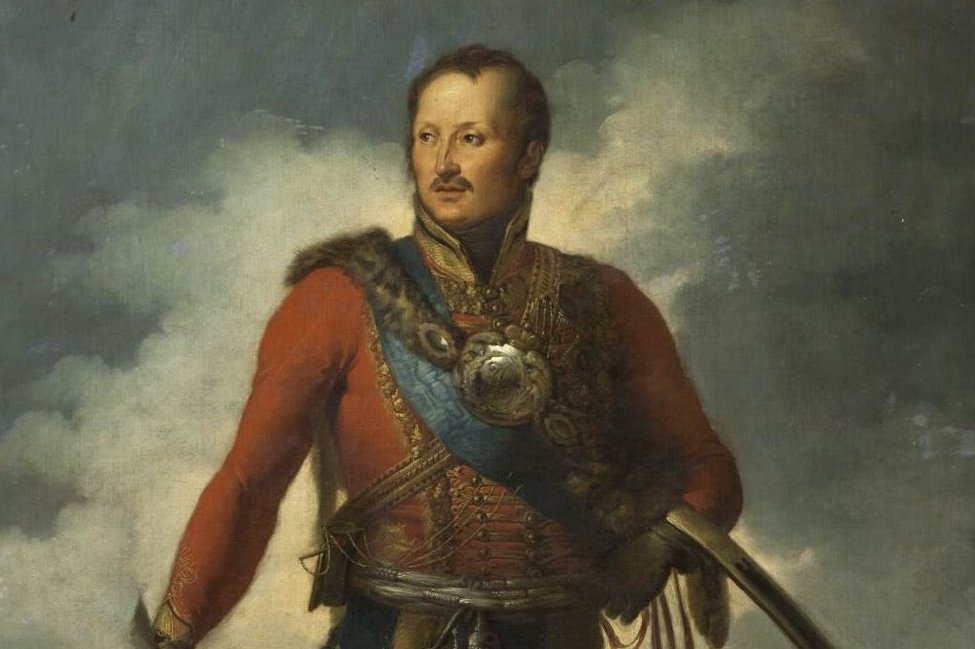 Unknown Author, Wikimedia Commons
Unknown Author, Wikimedia Commons
62. Building Bridges
As Russian forces closed in, Napoleon gave one final display of his superior battlefield intelligence. The French emperor ordered his Dutch engineers to work frantically on constructing a pontoon bridge across the icy Berezina River. As heavy fighting raged, Napoleon could only hope that his engineers finished the bridge before it was too late.
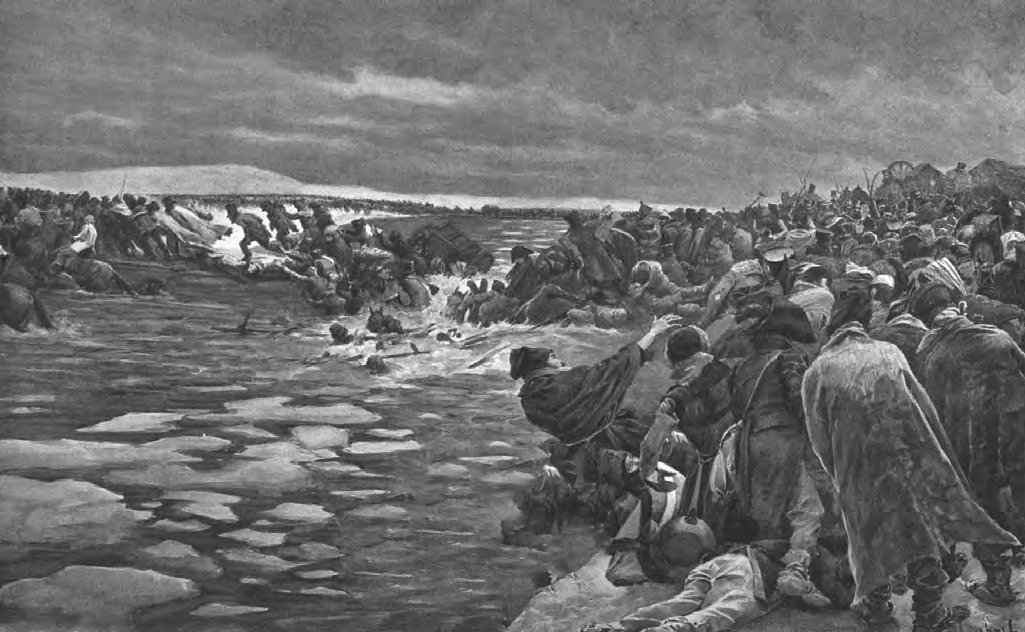 Felician Myrbach, Wikimedia Commons
Felician Myrbach, Wikimedia Commons
63. The Grand Armée Made A Great Escape
With the Russians at their back, the Grand Armée completed the pontoon bridge in just enough time. What remained of Napoleon’s army staggered across the makeshift pontoon bridge, pulling off a chaotic and harrowing crossing of the Berezina to safety. But it came at a terrible cost.
Napoleon lost another 40,000 men, many of them stragglers or civilian camp-followers who had been unable to keep up.
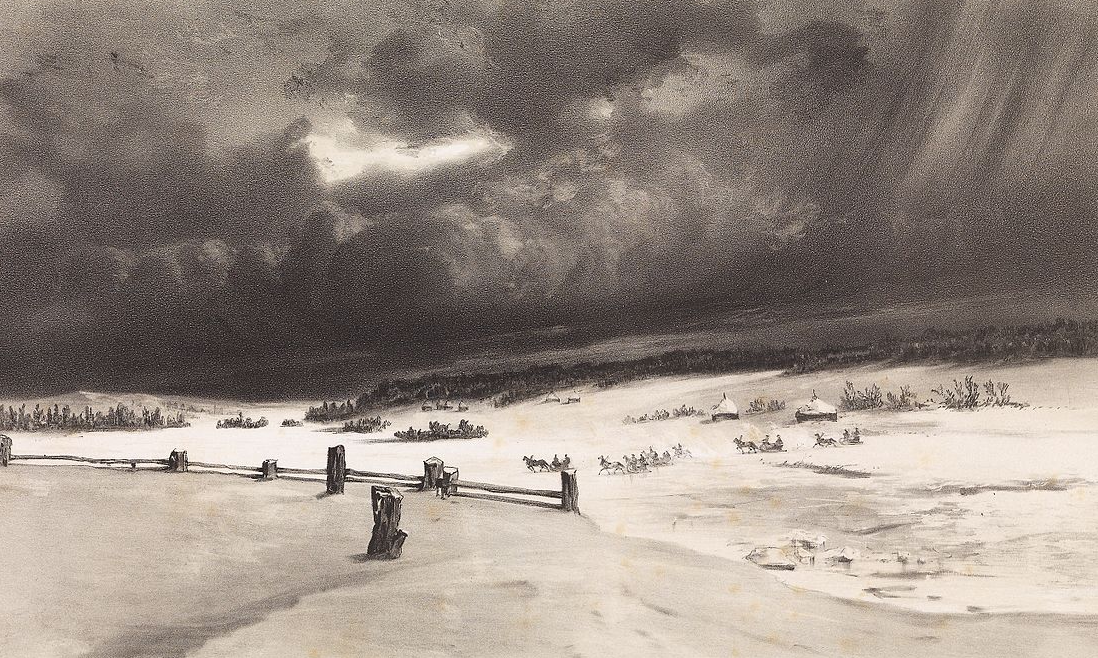 Léon Sabatier, Wikimedia Commons
Léon Sabatier, Wikimedia Commons

History's most fascinating stories and darkest secrets, delivered to your inbox daily.
64. It Was Every Man For Himself
After the Berezina crossing, the Grande Armée dissolved into total disarray. “From then on, it was almost every man for himself,” said Sheperd Paine, president of the Napoleonic Historical Society. The collapse of order marked the campaign’s bitter endgame. And Napoleon knew it.
 Adolph Northen, Wikimedia Commons
Adolph Northen, Wikimedia Commons
65. Napoleon Abandoned His Army
On December 5, Napoleon did the unthinkable: He abandoned his own army. In light of his spectacular failure, rumors of a coup began brewing in Paris. Desperate to retain his crown, Napoleon hurried ahead of his defeated army, leaving Joachim Murat in charge. Not much remained after that.
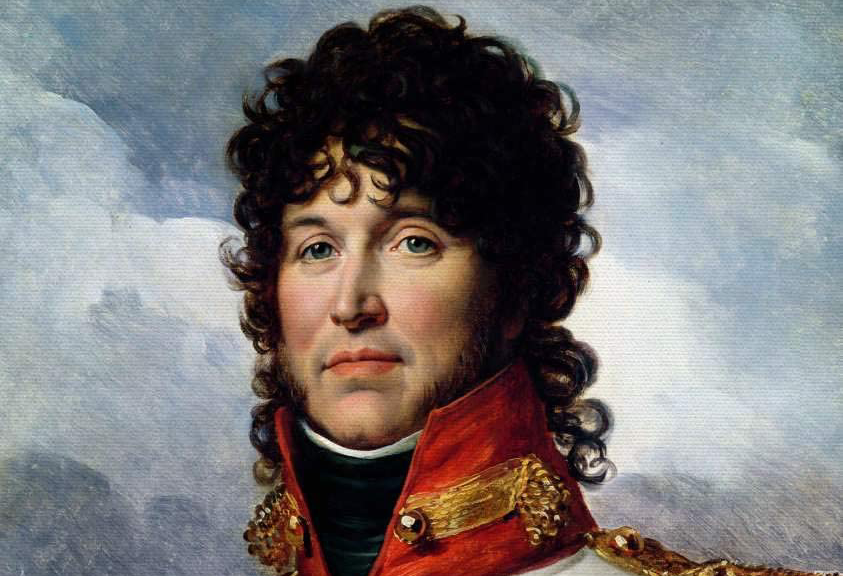 François Gérard, Wikimedia Commons
François Gérard, Wikimedia Commons
66. The Grand Armée Returned Home—In Shatters
Nine days after Napoleon abandoned his officers, on December 14, the remnants of the Grande Armée staggered back across the Niemen River. Their return into French-held territory officially marked the end of Napoleon’s nightmare in Russia. But another nightmare was just starting.
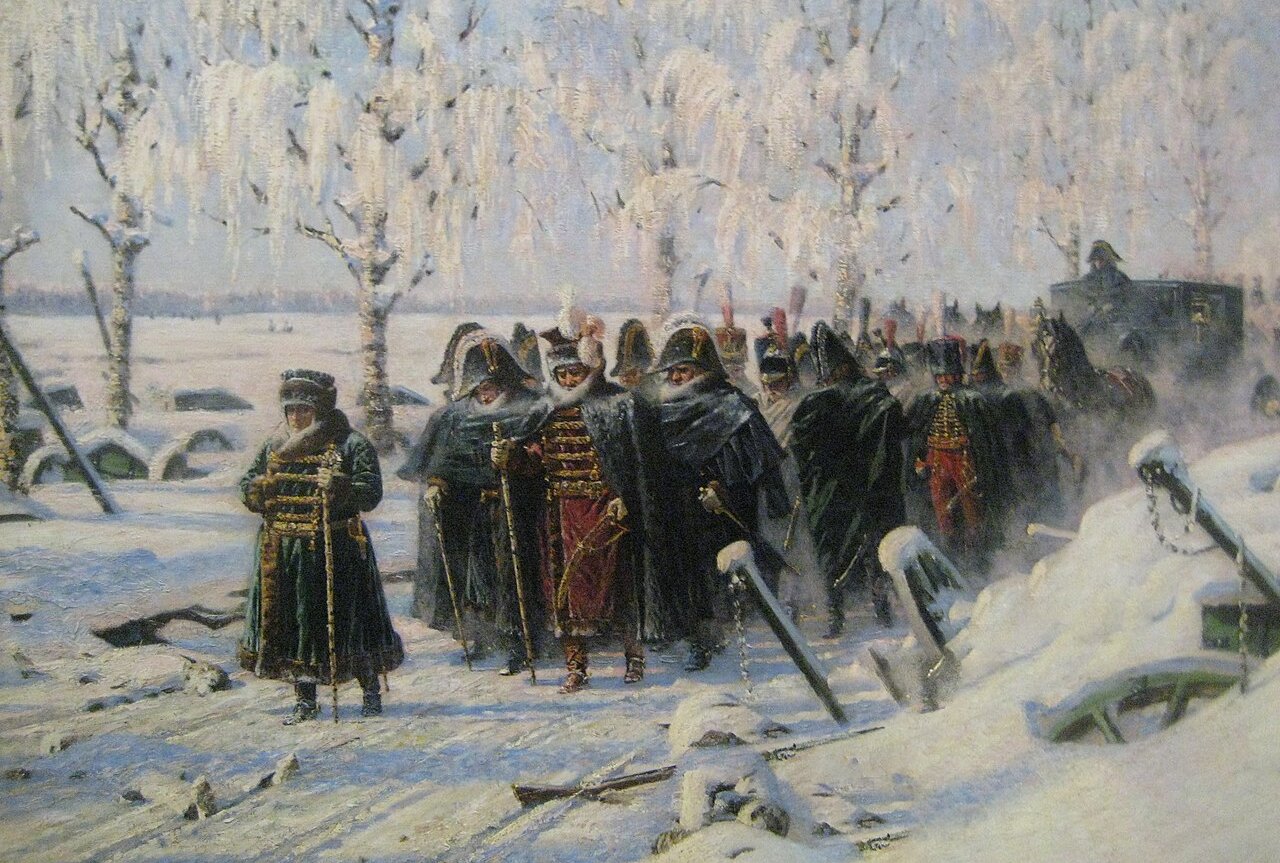 Shakko, CC BY-SA 3.0, Wikimedia Commons
Shakko, CC BY-SA 3.0, Wikimedia Commons
67. One Million People Perished
Of the 615,000 who began the invasion, fewer than 100,000 survived. Thousands returned frostbitten, starved, or crippled, while the rest lay buried in the Russian snow. All told, Napoleon’s invasion of Russia resulted in over a million casualties, both military and civilian, making it one of history’s deadliest martial disasters.
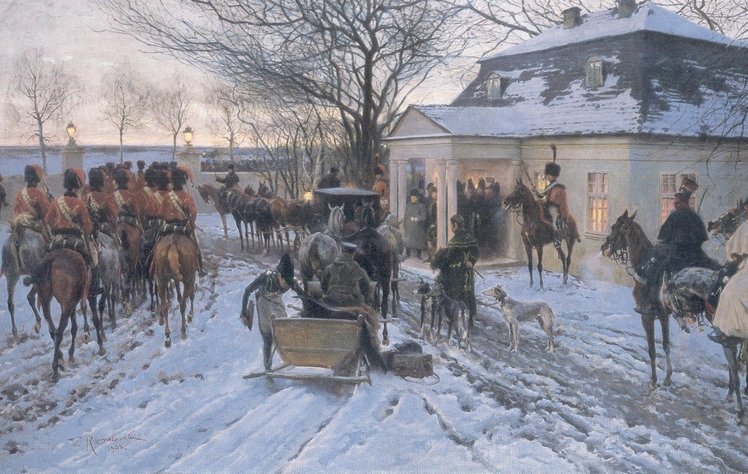 Zygmunt Rozwadowski, Wikimedia Commons
Zygmunt Rozwadowski, Wikimedia Commons
68. Napoleon’s Grand Armée Never Recovered
Napoleon’s return to Paris ended talk of a coup and the French emperor quickly raised new infantry conscripts. But Russia had already inflicted a fatal wound. Try as he might, Napoleon could not replace the cavalry, artillery, or the battle-hardened veterans he had lost in his ill-fated invasion.
The catastrophe in Russia left his empire weakened and vulnerable to its enemies, who were only too happy to seize the advantage.
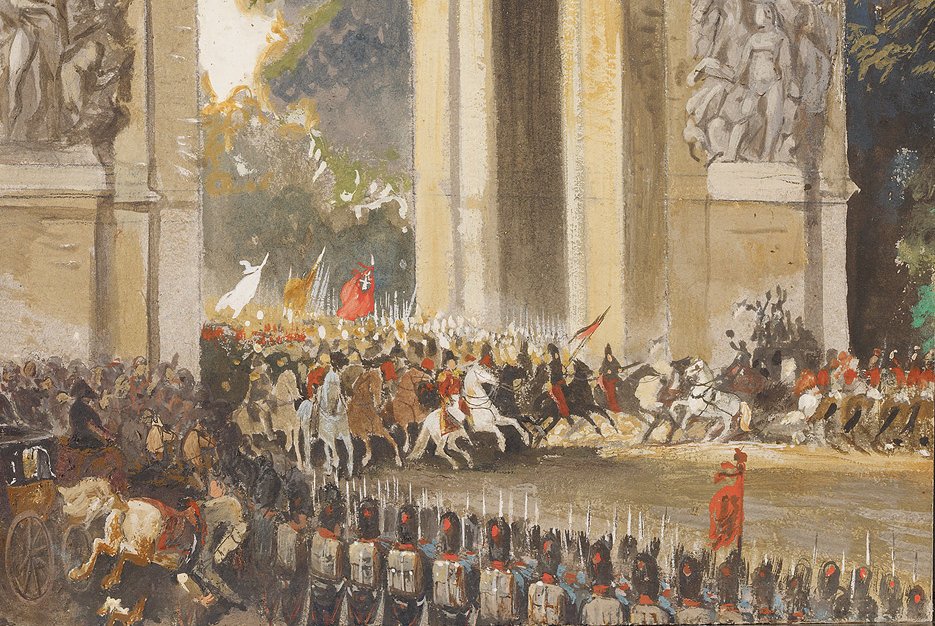 Nicolaas Pieneman, Wikimedia Commons
Nicolaas Pieneman, Wikimedia Commons
69. It Was The Beginning Of Napoleon’s End
The Russians, emboldened by Napoleon’s new weakness, did not stop at the Niemen. Joined by British, Prussian, and Austrian forces, they pursued Napoleon into Europe, turning the tables against the French emperor. From there, the Sixth Coalition would tear apart Napoleon’s empire, finally bringing his nightmare to its grim conclusion.
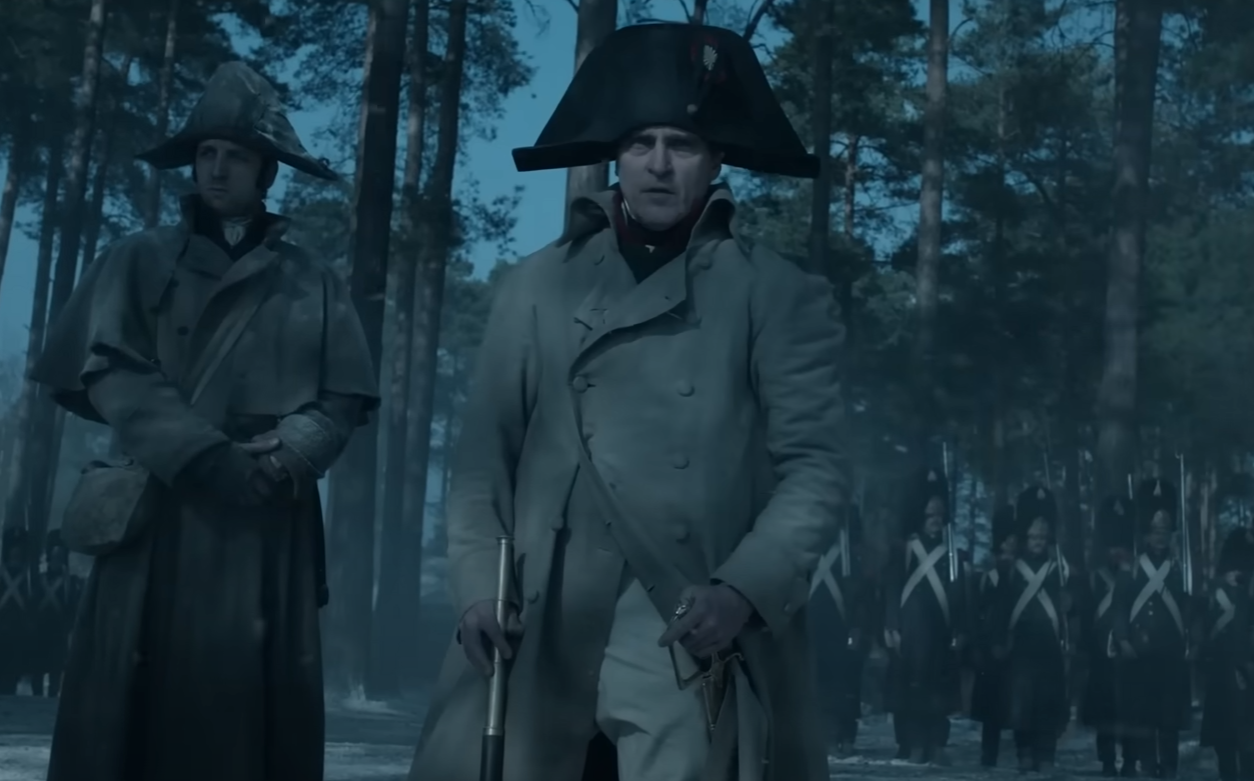 Scott Free Productions, Napoleon (2023)
Scott Free Productions, Napoleon (2023)

